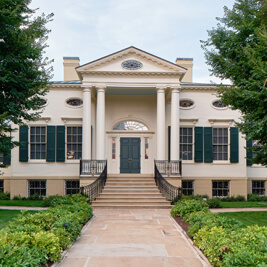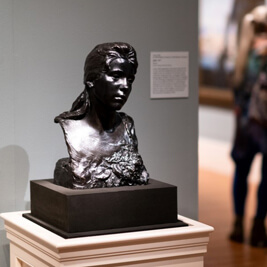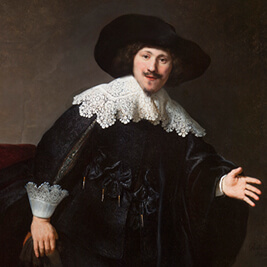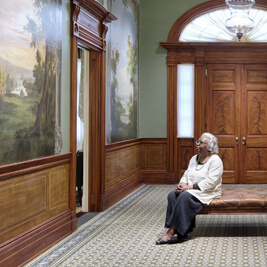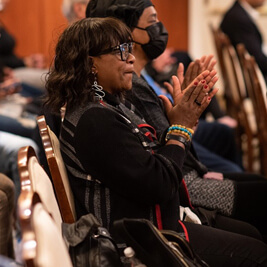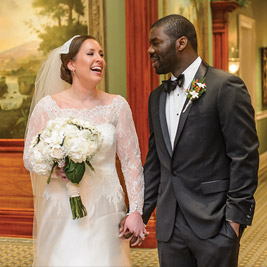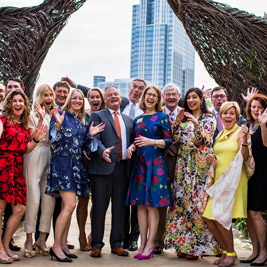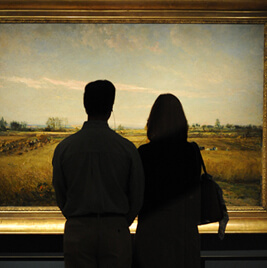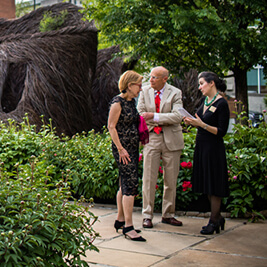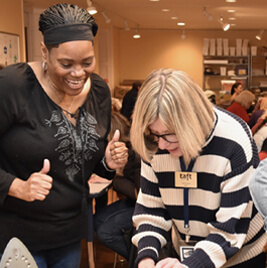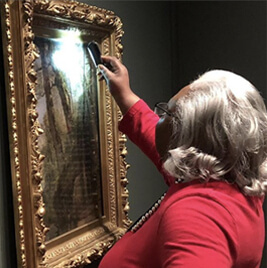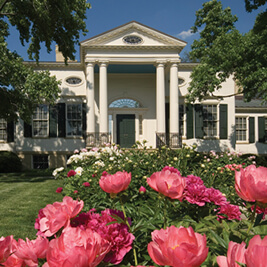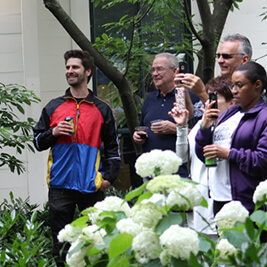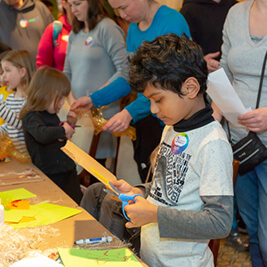- Do + See
- Dine + Host
- Give + Join
- Educate + Learn
Rediscover the Taft's Past Exhibitions
View a selection of the images, special features, history, and virtual tours of past exhibitions once on view at the Taft Museum of Art.
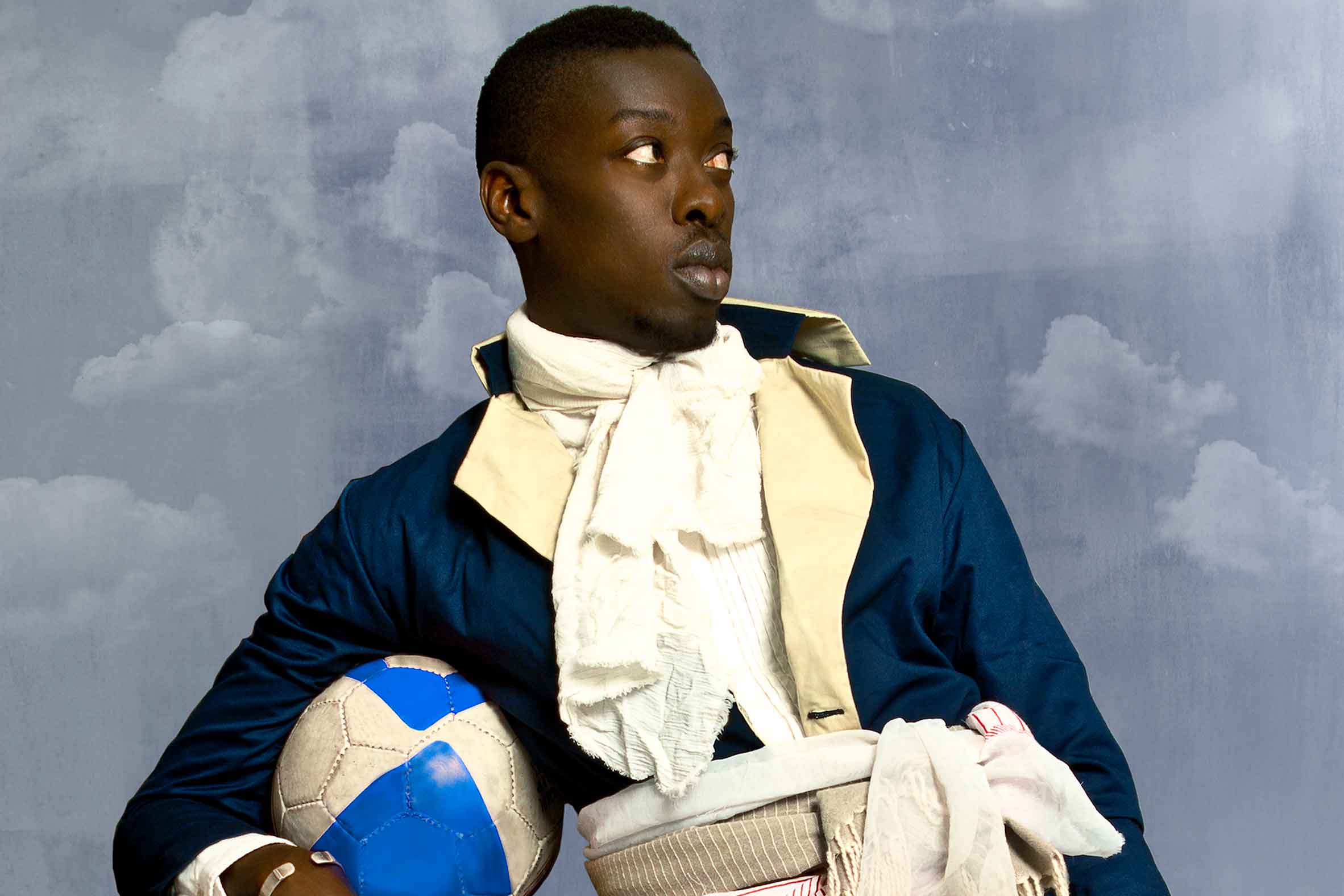
Omar Victor Diop (born 1980), Jean-Baptiste Belley, detail, 2014, inkjet pigment print on Hahnemuhle paper, edition of 8 + 2 AP. ©Omar Victor Diop, Courtesy of Galerie MAGNIN-A, Paris
Posing Beauty in African American Culture
October 5, 2024–January 12, 2025 | Fifth Third Gallery and Taft Historic House
Posing Beauty in African American Culture traces the relationship between African American beauty and visual culture from the 1890s to the present through documentary, commercial, and fine art photography. Documentary photographs and portraits of portraits of Black Americans—some famous, some just ordinary citizens—present the public face of African American beauty, while commercial photographs demonstrate how fashion and advertising have constructed beauty standards. Finally, contemporary photographers—some of whom use themselves as a subject—encourage consideration of how images of beauty impact mass culture and individuals.
Posing Beauty includes more than 100 works by photographers including Charles “Teenie” Harris, Leonard Freed, Anthony Barboza, Carrie Mae Weems, Hank Willis Thomas, Sheila Pree Bright, Renee Cox, Mickalene Thomas, and others. Organized by Curatorial Assistance Traveling Exhibitions and curated by Deborah Willis, PhD, one of the nation’s leading historians of African American photography and culture, the exhibition will challenge existing notions of beauty while encouraging consideration of race, class, and gender within art and popular culture.
LEARN MORE

Display | Holiday Traditions Old & New
November 13, 2024–January 6, 2025 | Taft Historic House
Do you often find yourself taking a break in the afternoon, perhaps for a cup of tea? Museum founders Charles and Anna Taft hosted an afternoon tea reception annually on New Year’s Day. According to a local newspaper, they provided their guests with “hot temptations” and “a delicious brew of eggnog.” Taking inspiration from these historical gatherings, we have adorned the museum’s dining room with a few must-haves for such an occasion, including gleaming tea and coffee services and a variety of dishes waiting to be filled with sweet treats.
LEARN MORE
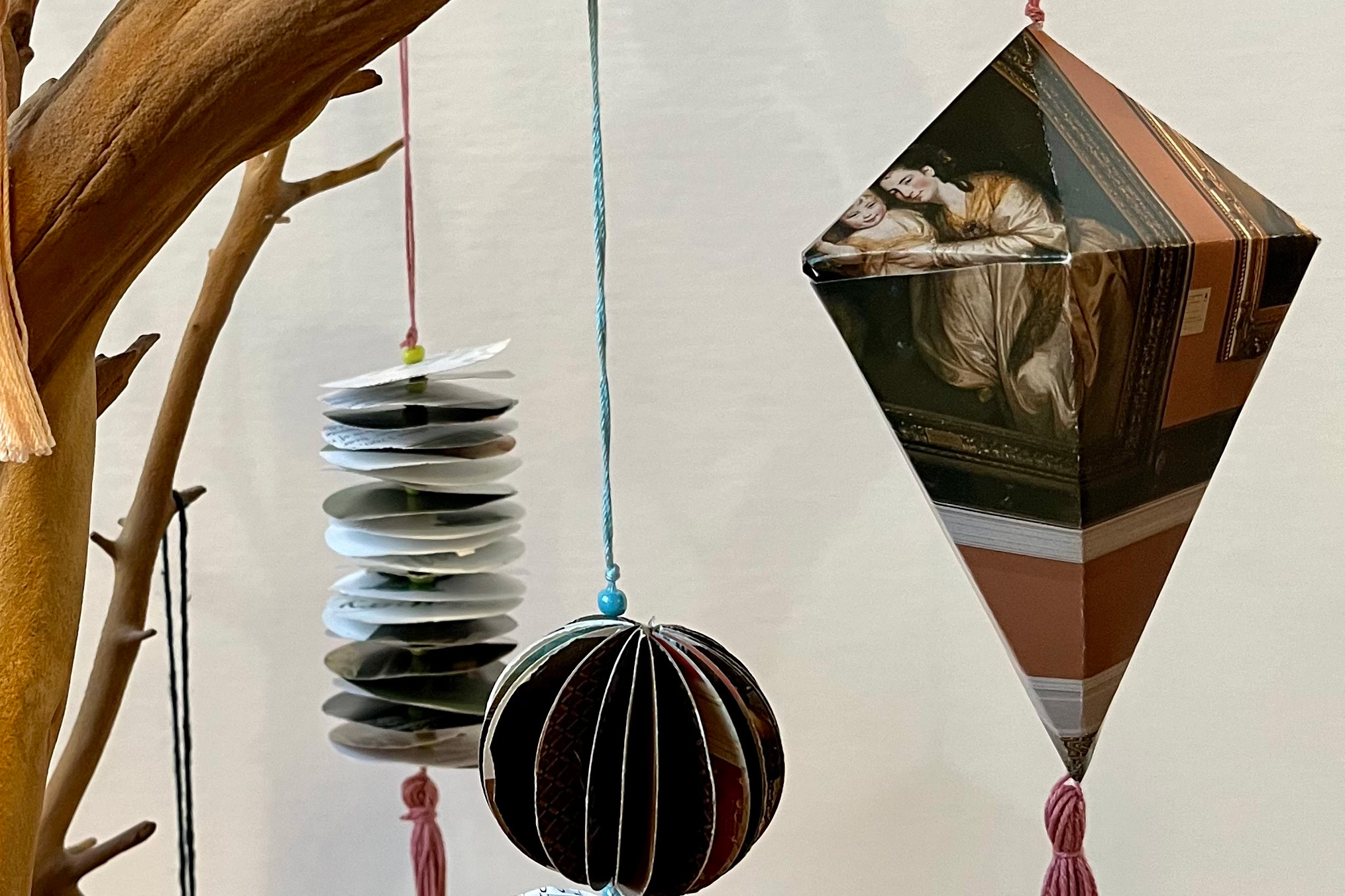
Display | Festive Transformations
November 13, 2024–January 6, 2025 | Taft Historic House
To celebrate the holidays this year, the Taft Museum of Art has partnered with Indigo Hippo, a Creative Reuse Center located in Cincinnati’s Over-the-Rhine neighborhood. Defining themselves as “a thrift store for art supplies,” the organization strives to bolster environmental sustainability, arts accessibility, and community engagement, all core values of the Taft as well. In keeping with this mission, Indigo Hippo chose to decorate this holiday tree by upcycling outdated Taft Museum of Art booklets, creating over two hundred ornaments. Indigo Hippo Executive Director Emily Dake says: “This project was a beautiful manifestation of Indigo Hippo’s mission to give materials a second life, and even more special that these publications by the Taft Museum of Art get to live on in the space the images feature.”
Join representatives from Indigo Hippo for an ornament-making workshop at the Taft on Sunday, December 8, from 11 a.m. to 12 p.m..
LEARN MORE
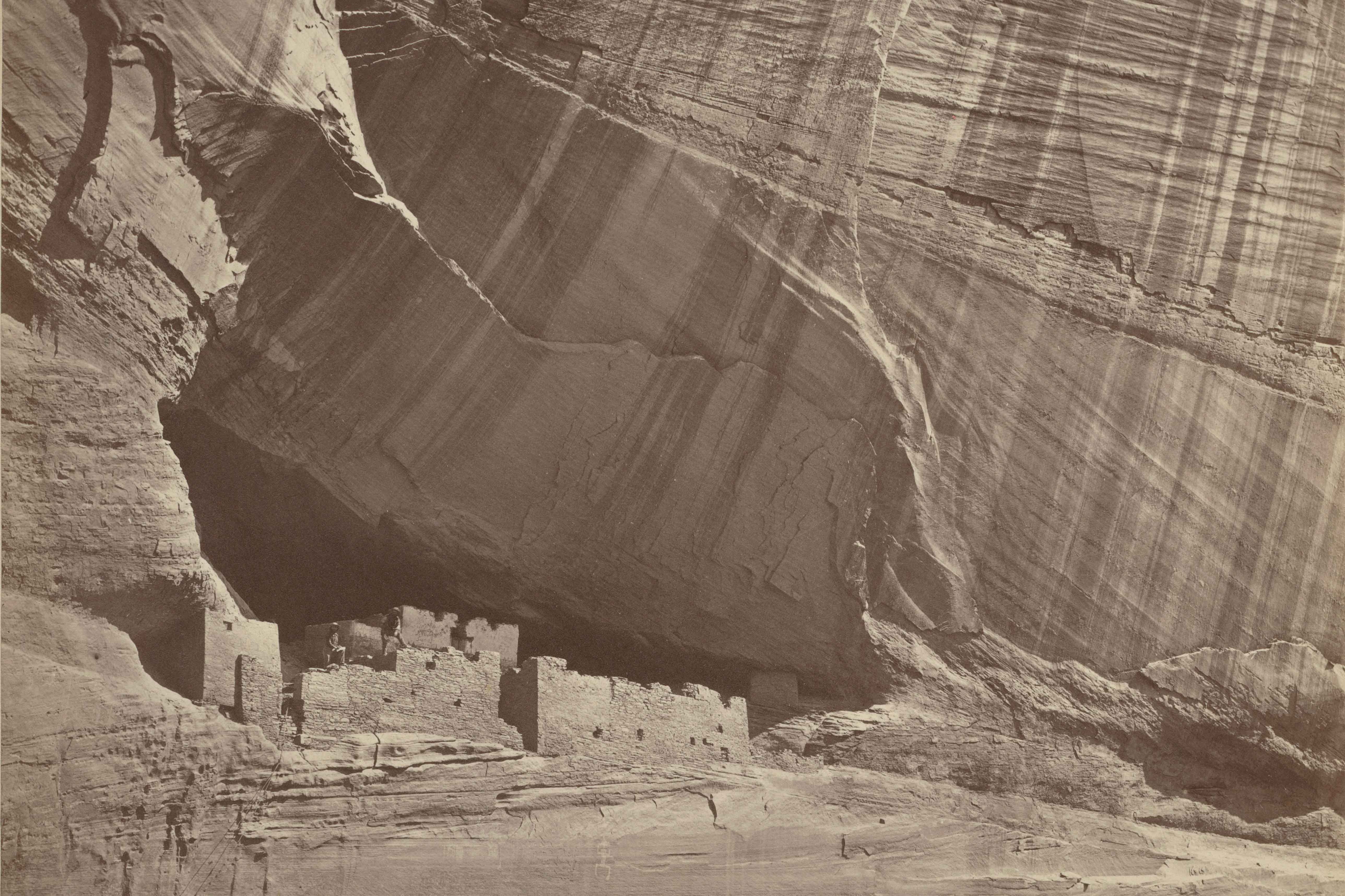
Timothy H. O’Sullivan (American, b. Ireland, about 1840–1882), Ancient Ruins in the Cañon de Chelle, N.M., detail, 1873, albumen silver print. Bank of America Collection
Moment in Time: A Legacy of Photographs / Works from the Bank of America Collection
June 8–September 15, 2024 | Fifth Third Gallery and Sinton Gallery
Moment in Time features more than 100 photographs dating from the invention of the medium in the 1830s through the mid-20th century. The exhibition includes compelling masterworks by William Henry Fox Talbot, Julia Margaret Cameron, Timothy O’Sullivan, Alfred Stieglitz, Henri Cartier-Bresson, Ansel Adams, Dorothea Lange, and Walker Evans, among others. All explored the breadth and depth of the camera’s ability to capture a moment in time.
LEARN MORE
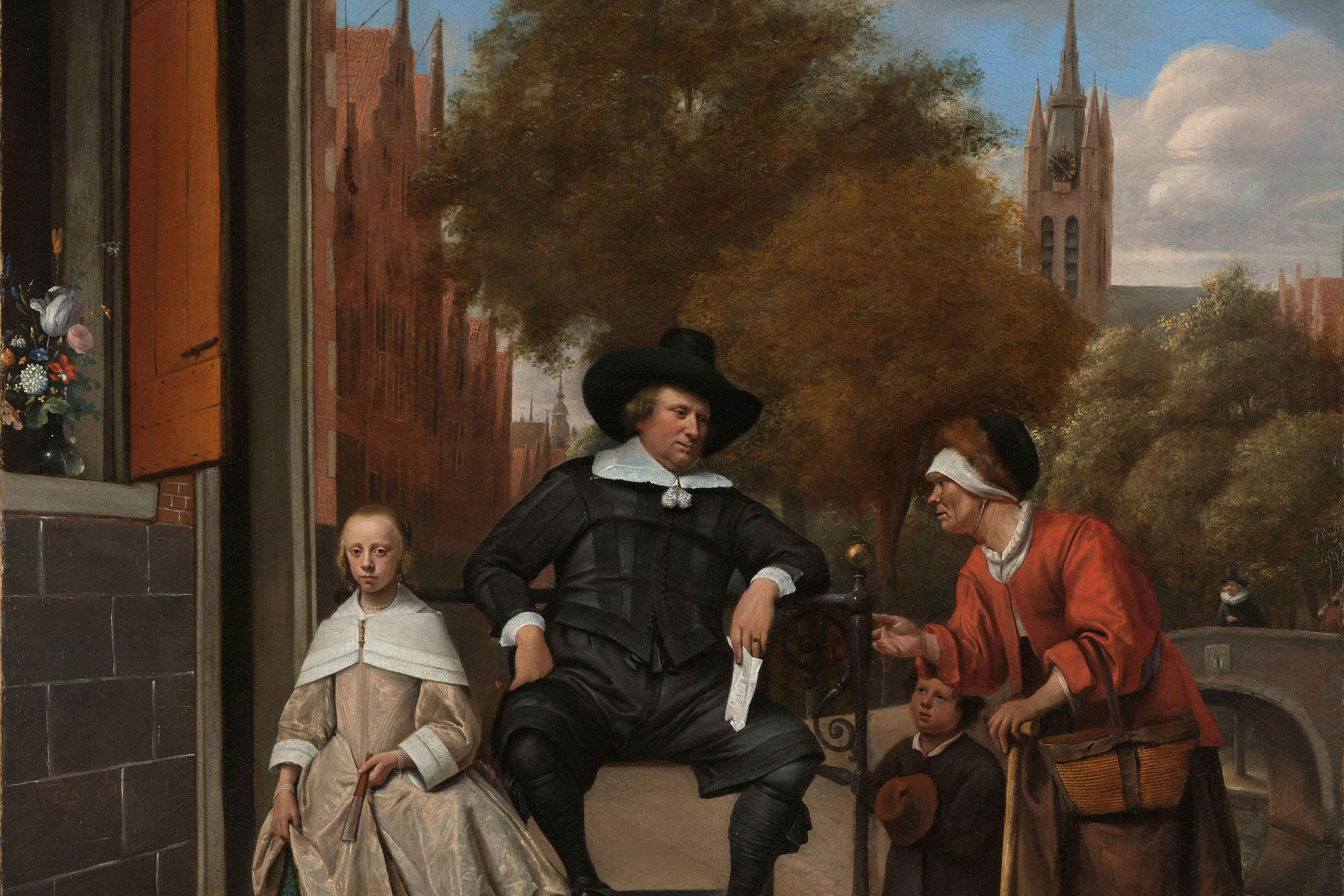
Jan Steen (Dutch, 1625/6–1679) Adolf and Catharina Croeser (also known as The Burgomaster of Delft and His Daughter), detail, 1655, oil on canvas. Loan from the Rijksmuseum, Amsterdam, Purchased with the support of the Mondriaan Fonds, the Nationaal Aankoopfond
Trading Places: The Rijksmuseum Lends Rare Painting to the Taft Museum of Art
October 14, 2023–June 16, 2024 | Music Room, Collection Galleries
While the Taft Museum of Art’s portrait of Michiel de Wael travels to the National Gallery, London and Rijksmuseum, Amsterdam for the first major comprehensive exhibition devoted to Frans Hals in 30 years, the Taft welcomes a rare work by another Dutch master, Jan Steen, on loan from the Rijksmuseum.
LEARN MORE
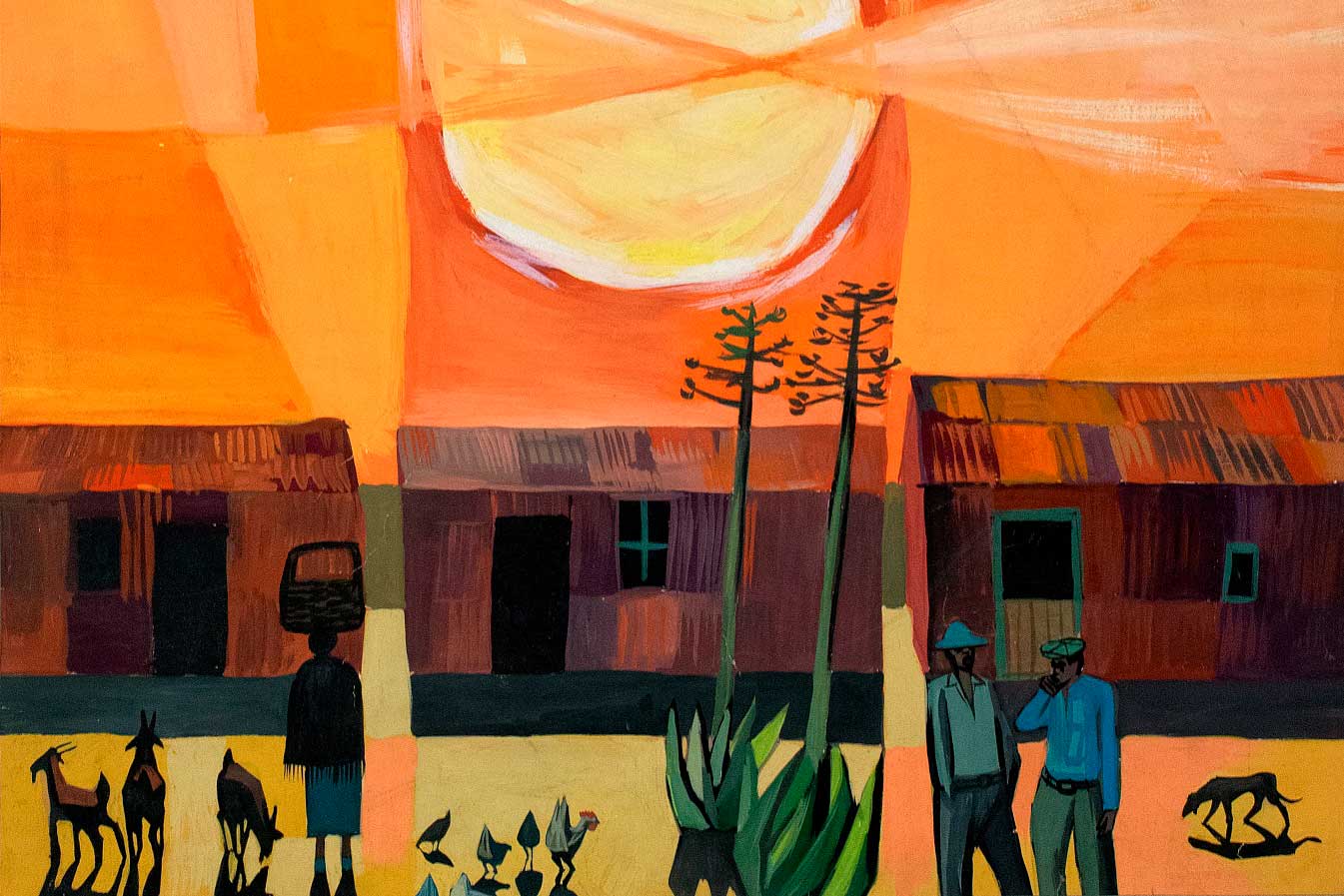
Peter Clarke (South African, 1929–2014), That Evening Sun Goes Down (detail), 1960, gouache on paper, 21 1/2 x 17 in. Fisk University Galleries, Nashville, Gift of the Harmon Foundation, 1991.313. © 2022 Peter Edward Clarke / DALRO, Johannesburg / Artists Rights Society (ARS), New York. Courtesy American Federation of Arts. Funding for the conservation of this artwork was generously provided through a grant from the Bank of America Conservation Project
African Modernism in America
February 10–May 19, 2024 | Fifth Third Gallery
African Modernism in America features more than 60 dynamic and vivid works of art created in Africa during the 1950s and ‘60s. Co-organized by the American Federation of Arts and Fisk University Galleries, the exhibition explores the relationships formed between African artists and American patrons, artists, and cultural organizations amid the interlocking histories of civil rights, decolonization, and the Cold War. The inventive nature of the works in this exhibition challenges the assumptions of the time about African art being isolated to a “primitive past.” Some pieces took inspiration from early Christian art, West African sculpture, and Nigerian literature, while others reflect the influences of American jazz and modern European art.
LEARN MORE
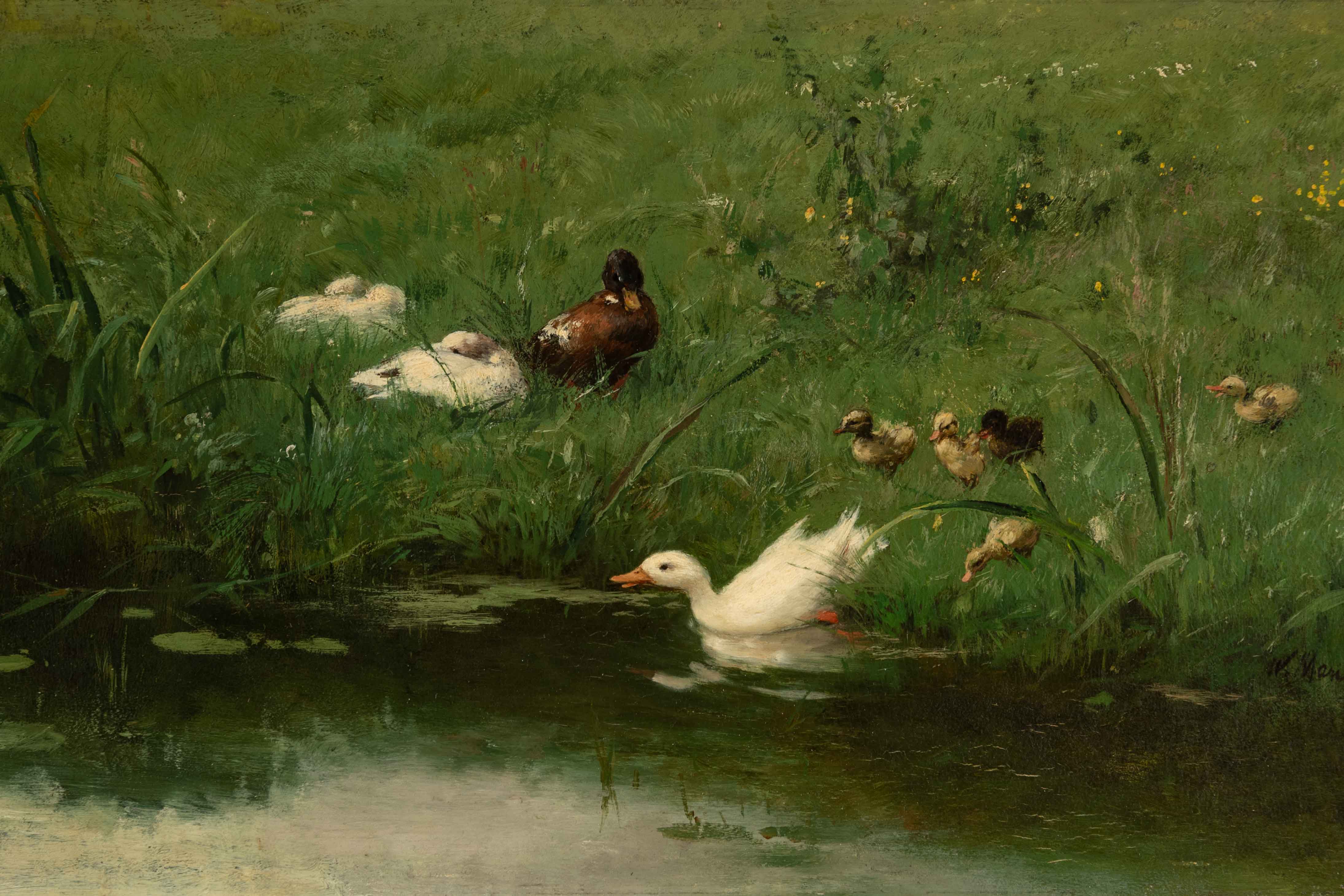
Willem Maris (Dutch, 1844–1910), Ducks, about 1875–80, oil on panel, 8 5/8 x 16 5/8 in. (21.91 x 42.23 cm). Taft Museum of Art, Cincinnati, Ohio. Bequest of Charles Phelps Taft and Anna Sinton Taft, 1931.408
A Breath of Fresh Air: Nature Inspires Rarely Seen Works from the Taft Collection
February 17–May 19, 2024 | Sinton Gallery
With their colorful petals, rippling water, and cloudy skies, the artworks in this exhibition invite contemplation of the natural world. Immerse yourself in crisp seaside sunshine or among ancient ruins at twilight. Swim along with ducks in a leafy pond or stroll through a pocket-sized garden. Charles and Anna Taft acquired hundreds of exquisite yet modestly sized artworks to display in their home, now the Taft Museum of Art. The six paintings and five works of decorative art in A Breath of Fresh Air come from the museum’s collection, but due to limited space in the museum’s room-sized galleries, they rarely go on public view.
LEARN MORE
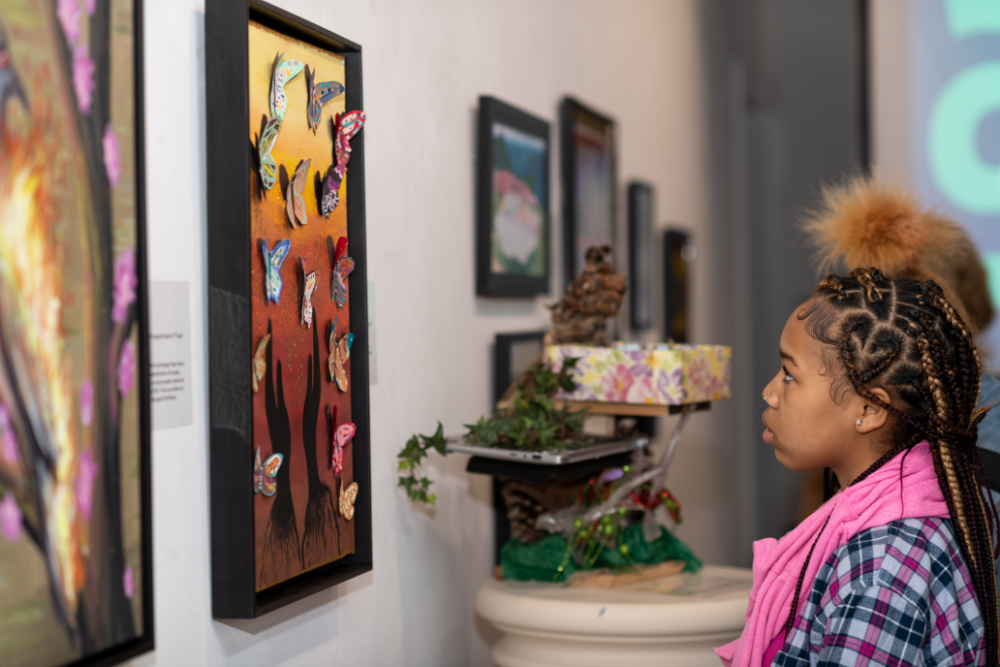
Artists Reaching Classrooms (ARC): Wonder
February 18–March 30, 2024 | The Annex Gallery
Each year the ARC program immerses high school art students in Cincinnati’s visual arts community and exposes them to careers in the arts through studio visits and other field trips. Celebrate this special program and the students’ future careers with their own curated gallery show, Wonder, on view at The Annex Gallery.
LEARN MORE
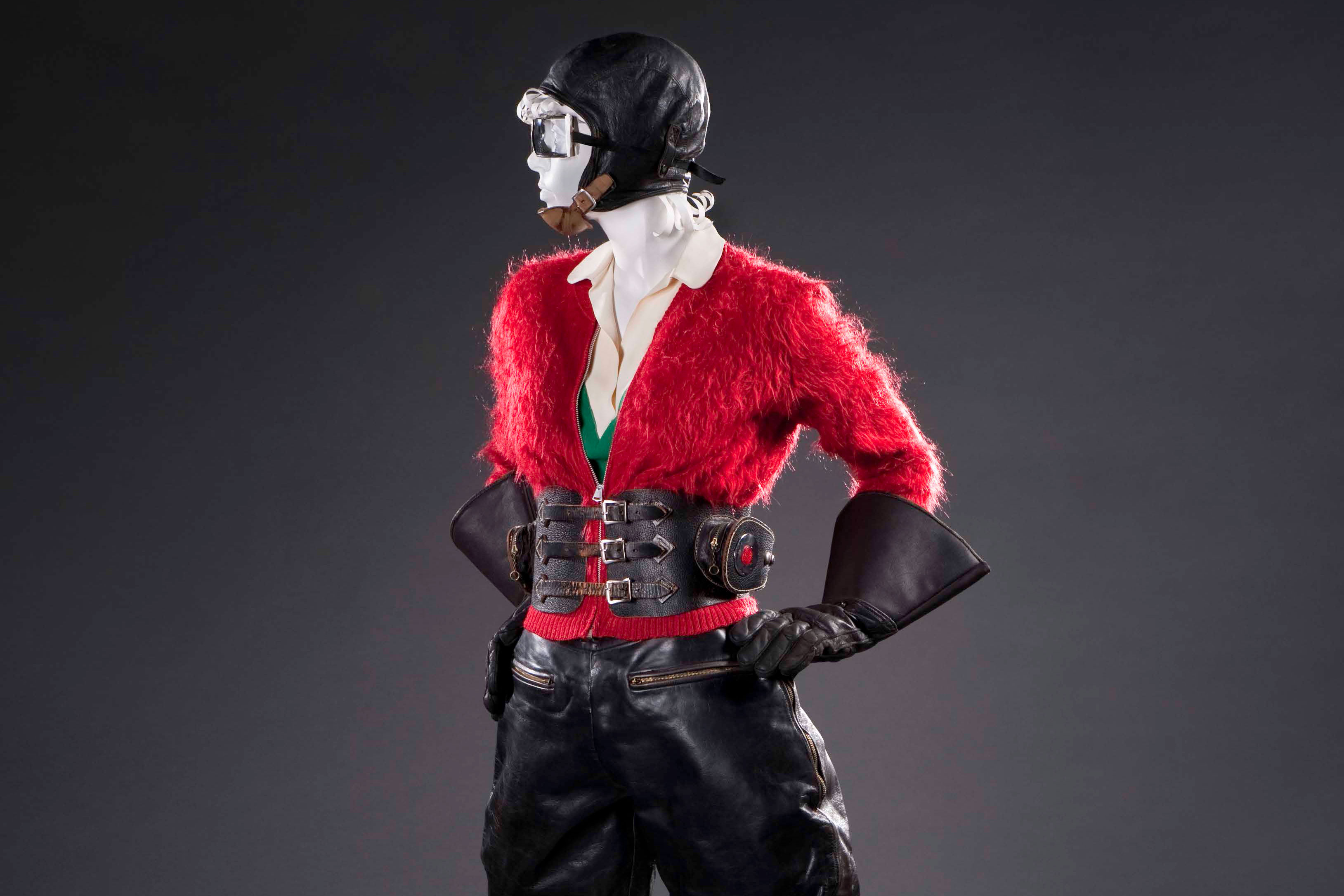
Motorcycling ensemble, detail, 1930s Photo: Brian Sanderson © FIDM Museum Courtesy American Federation of Arts
Sporting Fashion: Outdoor Girls 1800 to 1960
October 14, 2023–January 14, 2024 | Fifth Third Gallery, Sinton Gallery, and Collection Galleries
Sporting Fashion: Outdoor Girls 1800 to 1960 explores women’s ongoing negotiation of the demands of fashion, function, and feminine decorum. Featuring over 60 fully accessorized ensembles, it is the first exhibition to consider the evolution of women’s sporting and leisure attire, revealing how clothing was designed to accommodate a variety of activities ranging from horseback riding to golfing to motorcycling. As both athletes and spectators, women—and the innovative and stylish attire they wore—helped break down the barriers that had isolated them from the then male-dominated sporting world. Sporting Fashion is co-organized by the American Federation of Arts and the FIDM Museum at the Fashion Institute of Design & Merchandising, Los Angeles.
LEARN MORE
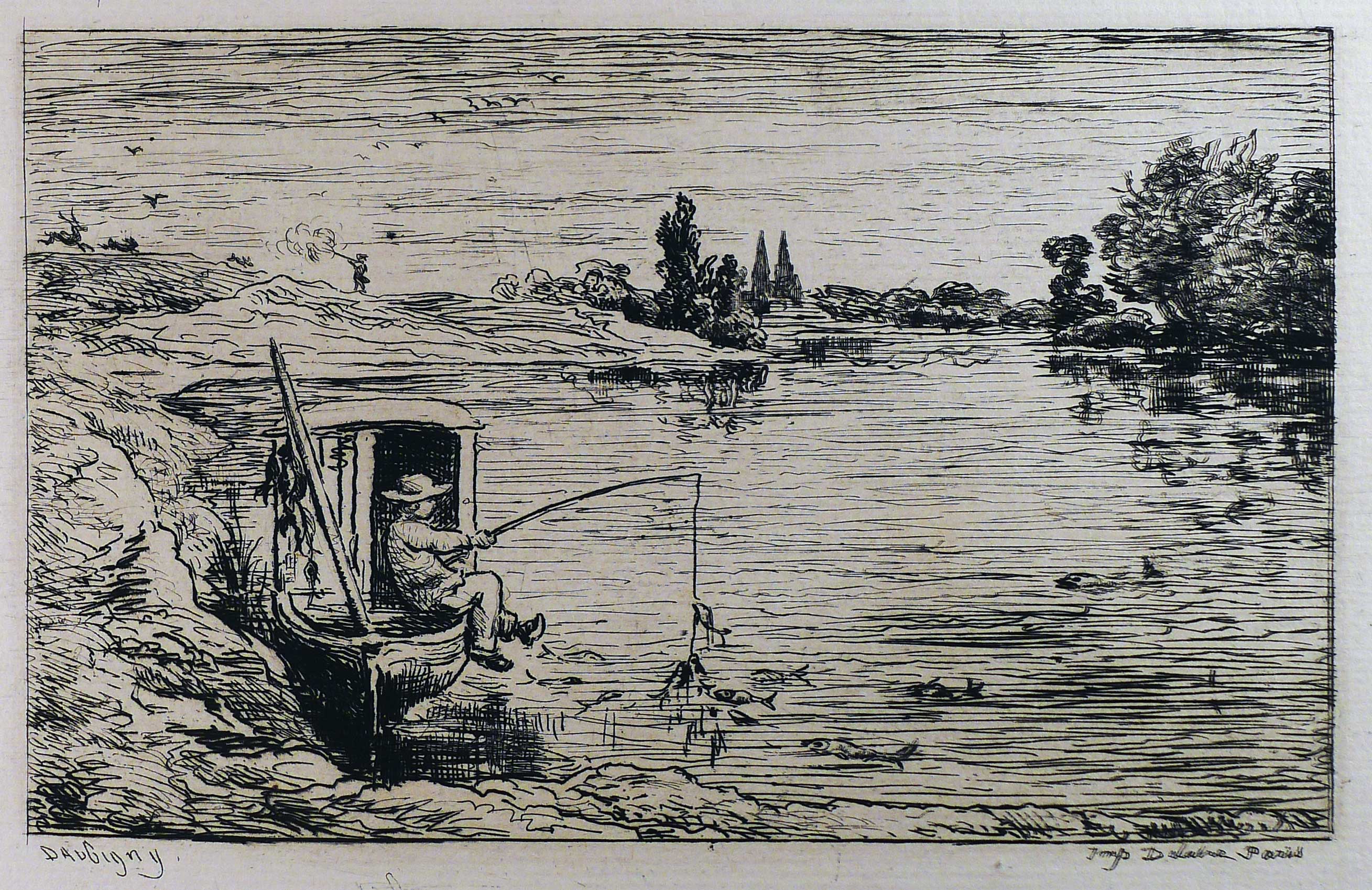
Charles François Daubigny, The Cabin Boy Fishing, 1861, published 1862 by Alfred Codart, Paris, etching. Collection of the Estate of Sallie Robinson Wadsworth.
The Boat Trip: Etchings by Charles François Daubigny
June 17–September 10, 2023 | Sinton Gallery
In 1857, French landscape painter Charles François Daubigny (1817–1878) purchased a 27-foot ferryboat and converted it into a floating studio from which he could observe and paint at all times of day. Rivers often take center stage in Daubigny’s paintings—three of which are in the Taft collection—with innovative, water-level perspectives that influenced younger generations of artists, including the Impressionist Claude Monet, who built a studio boat of his own. The Boat Trip documents Daubigny’s first studio boat voyages on the river Seine north of Paris. During these trips, Daubigny created a visual diary of 47 ink drawings, from which he selected 15 as the basis for the etching series Voyage en Bateau (The Boat Trip). The artist’s sense of humor and whimsy—as well as his endearing relationship with his 12-year-old son and “cabin boy” Charlot—emerge throughout scenes of eating, sleeping, fishing, and painting aboard the rustic boat nicknamed the Botin (little box).
LEARN MORE
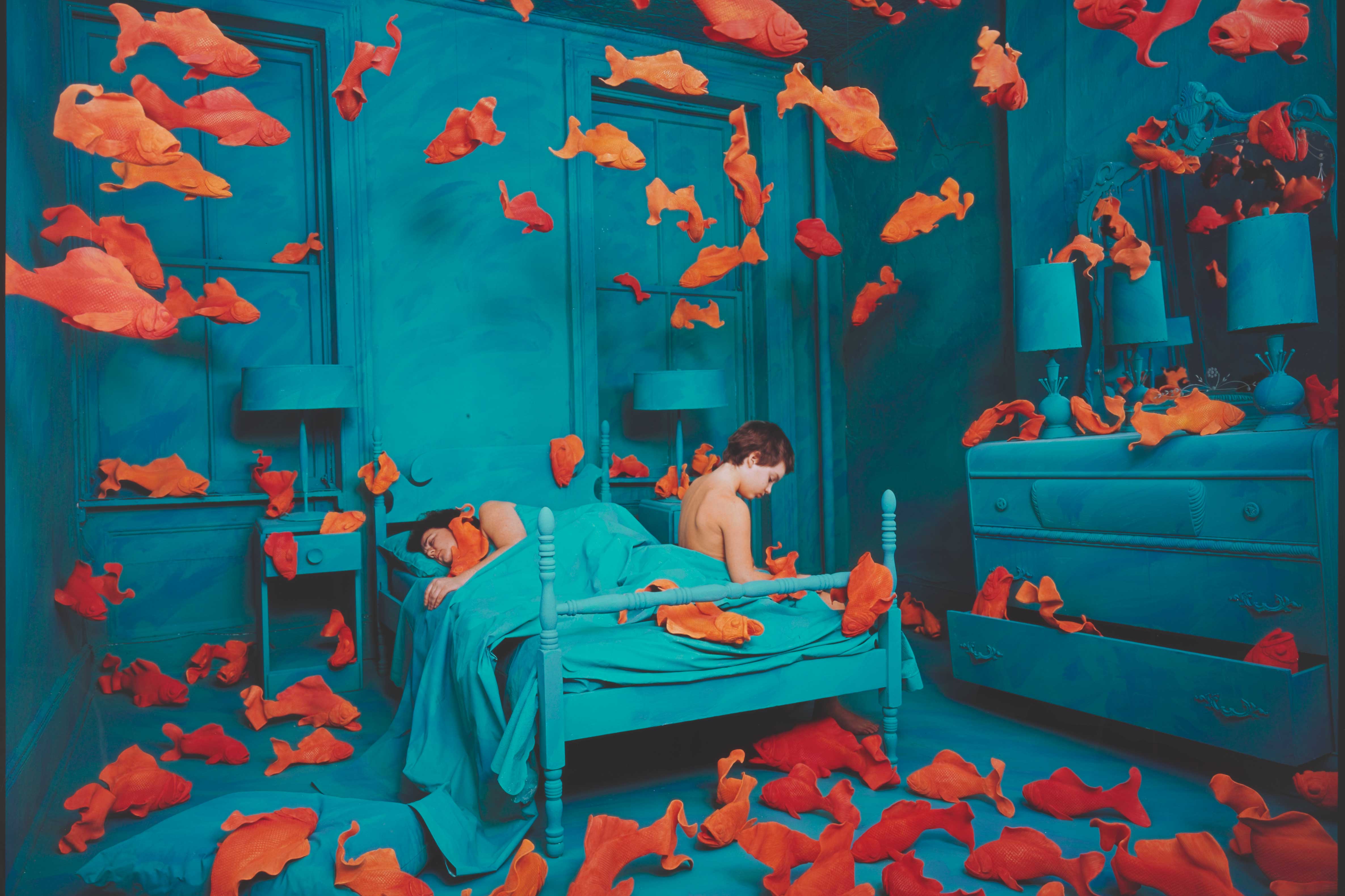
Sandy Skoglund (American, born 1946), Revenge of the Goldfish, detail, 1981, Cibachrome print; artist’s print 7/30. Bank of America Collection. Courtesy of the artist
Modern Women/Modern Vision: Photography from the Bank of America Collection
June 3–September 10, 2023 | Fifth Third Gallery
Ever since photography’s inception in the mid-1800s, women have forged pioneering paths for the medium. Come trace the influential role of women photographers over the past century through the work of artists such as pictorialist Gertrude Käsebier; modernists Margaret Bourke-White and Imogen Cunningham; Depression-era documentary photographers Dorothea Lange and Esther Bubley; post–World War II innovators Diane Arbus, Cindy Sherman, and Barbara Kruger; and contemporary photographers Carrie Mae Weems and Rineke Dijkstra. The approximately 100 photographic prints in Modern Women / Modern Vision honor women’s accomplishments in creating radically inventive images at each phase of modern history. This exhibition has been loaned through the Bank of America Art in our Communities® program.
LEARN MORE
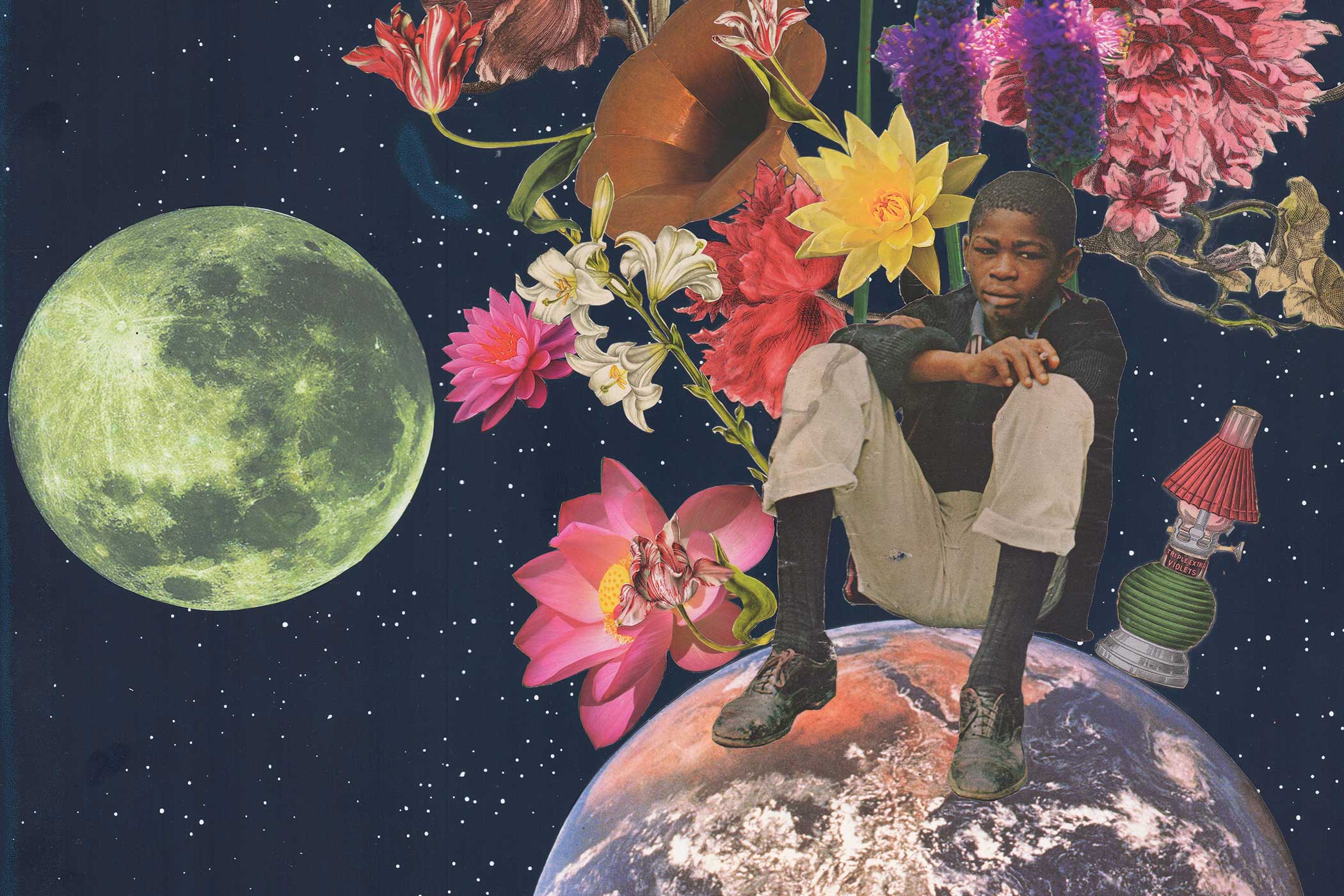
Terence Hammonds (American, born 1976), Hope, 2022, HD print on aluminum, 24 x 18 in. Photo by the artist
Universal Magnetic: New Works by Terence Hammonds
February 16–June 4, 2023 | Sinton Gallery
Discover prints and ceramics by Terence Hammonds that encourage positive change. Several of Hammonds’s ceramics also will be on display in the permanent collection galleries, allowing for conversations about historical and contemporary works of art.
LEARN MORE
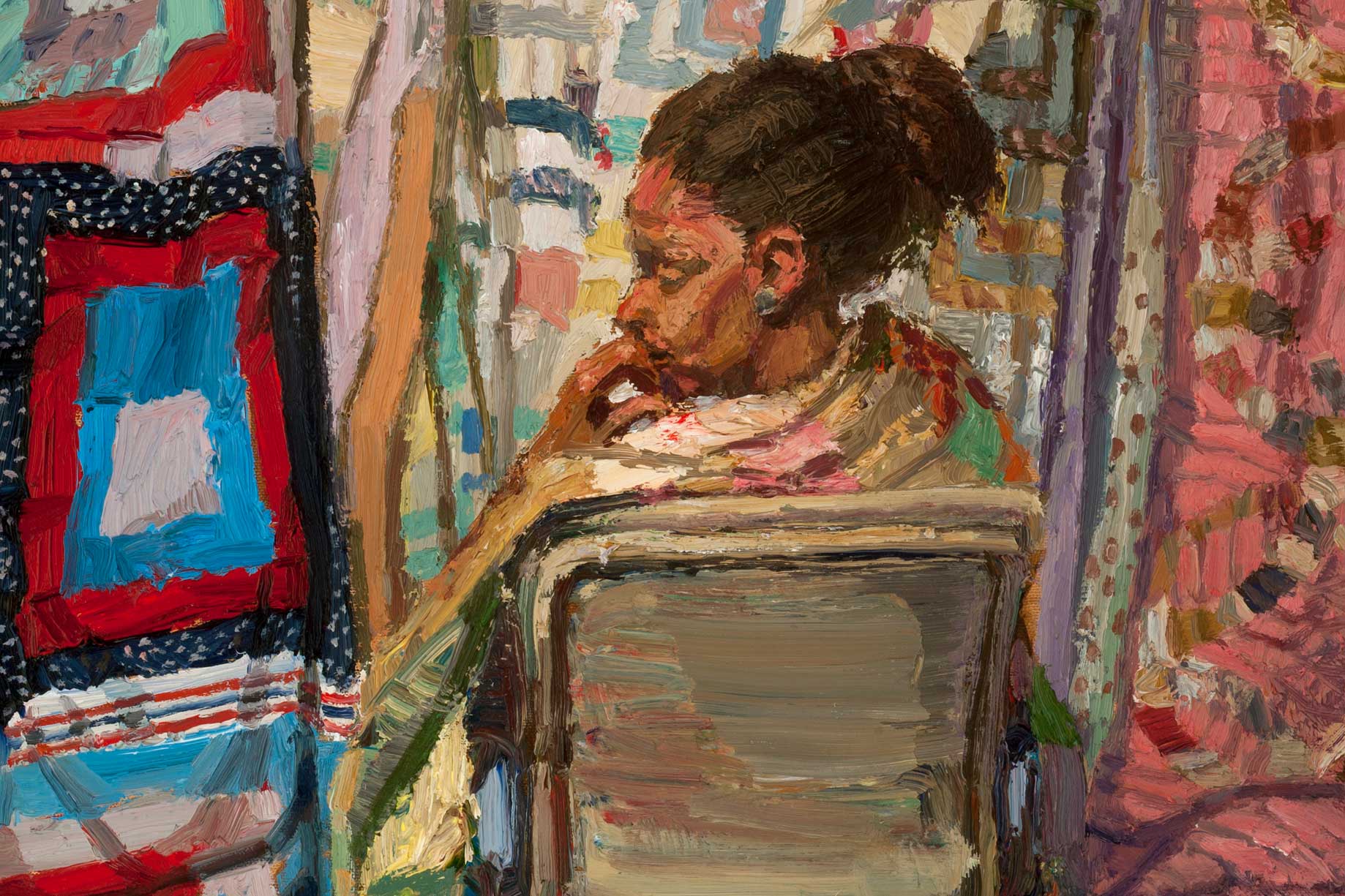
Sedrick Huckaby, She Wore Her Family’s Quilt, detail, 2015, oil on canvas. Photo by Gregory Staley, © Sedrick Huckaby
Memories & Inspiration: The Kerry and C. Betty Davis Collection of African American Art
February 4–May 14, 2023 | Fifth Third Gallery
Memories & Inspiration features selections from the private collection of Kerry and C. Betty Davis. For over 35 years, Mr. Davis, a retired postal worker, and Mrs. Davis, a former television news producer, have collected with a focus on diverse 20th- and 21st-century approaches to the Black image. According to Mr. Davis, “Our goal is to preserve cultural memories and provide the community with a source of inspiration.” The exhibition features approximately 60 works of art, including paintings, prints, drawings, photographs, sculptures, and mixed media by well-known African American artists Romare Bearden, Elizabeth Catlett, Sam Gilliam, Loïs Mailou Jones, Jacob Lawrence, Gordon Parks, Alma Thomas, and others.
Organized and toured by International Art & Artists, Washington, DC, Memories & Inspiration provides an example of a private collection formed by a singular vision. The Davis residence has been called “a museum in a home,” offering an enlightening comparison to Charles and Anna Taft’s own collection. The Davises’ collection reveals their hopes and passions, infusing Memories & Inspiration with a tremendous personal power.
LEARN MORE
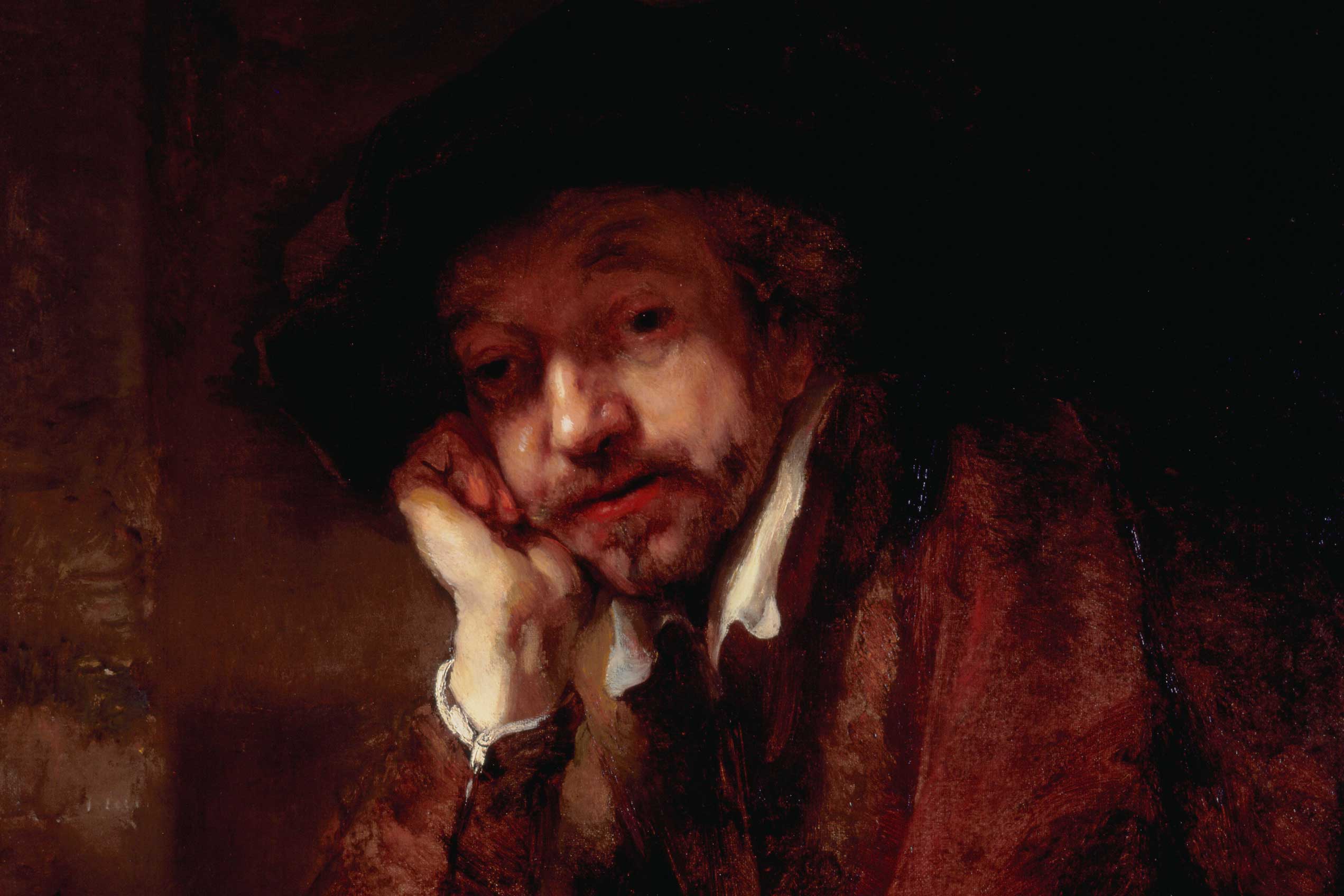
Imitator of Rembrandt van Rijn (Dutch, 1606–1669), Man Leaning on a Windowsill, probably early 1700s, oil on canvas. Taft Museum of Art, Bequest of Louise Taft Semple, 1962.1
Fakes, Forgeries, and Followers in the Taft Collection
October 22, 2022–February 5, 2023 | Sinton Gallery
Fakes and forgeries provide some of the most compelling stories in the art world. Did you know that the Taft collection contains some of its own attribution mysteries, some solved and others still in question? This small exhibition will reveal the fascinating histories of selected paintings and works of decorative art normally kept in storage. Among them, portraits originally thought to be by Rembrandt van Rijn demonstrate how authenticating the great Dutch master’s paintings has evolved in the century since Charles and Anna Taft built their collection. Paintings previously believed to have been created by Spanish artist Francisco de Goya and English landscapist John Constable were later discovered to be works by their followers. Nineteenth-century carved stone plaques once masqueraded as Renaissance portraits of royalty. A pair of porcelain vases was made in France in the late 1800s rather than, as the Tafts believed, in China a century earlier. Follow along as we trace the detective work that uncovered the true identities of these works of art, many of which have not been seen by the public in more than 30 years.
LEARN MORE
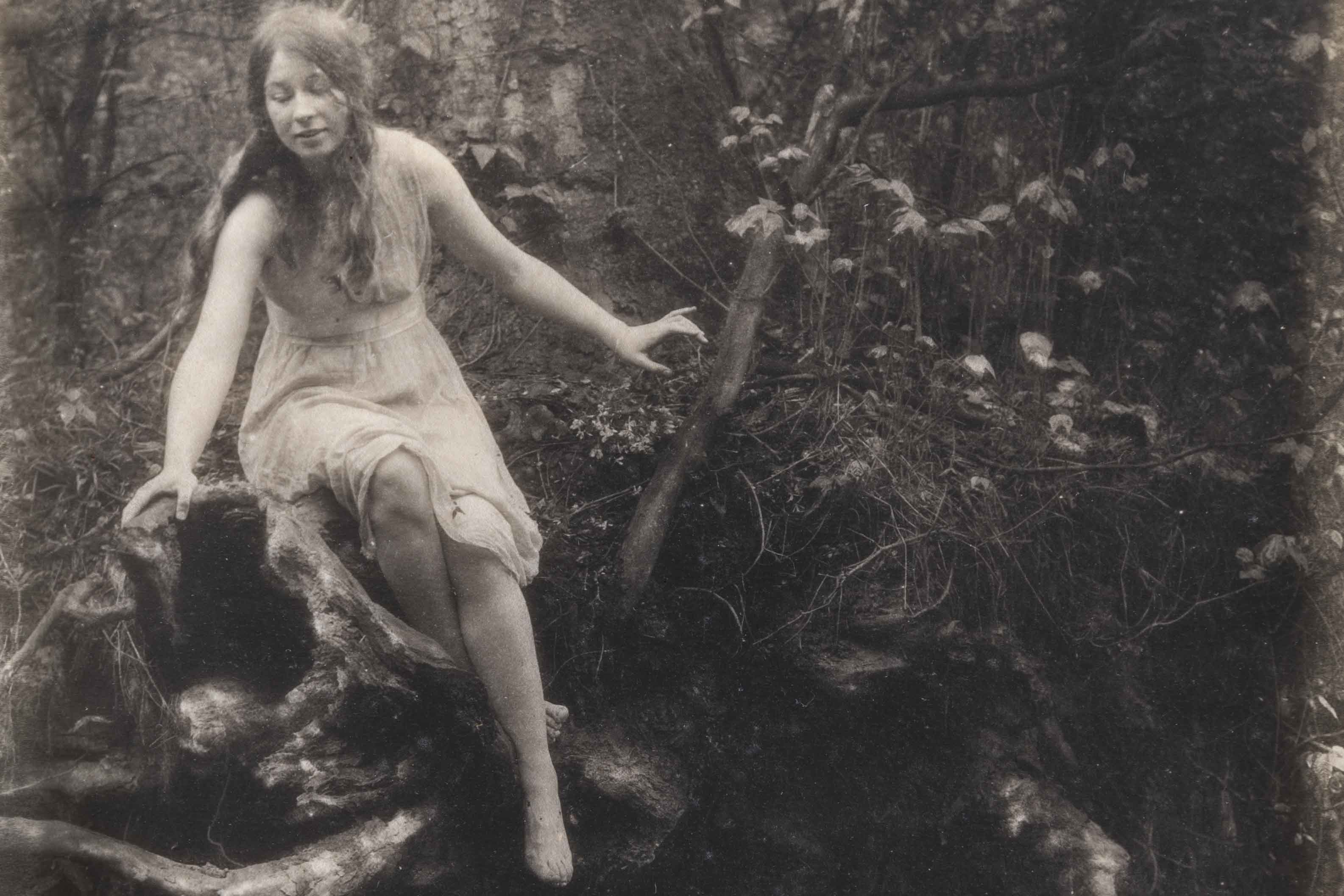
Nancy Ford Cones (American, 1869–1962),The Abode of the Gnomes, about 1921, kallitype tissue print. Collection of W. Roger and Patricia K. Fry
Craft and Camera: The Art of Nancy Ford Cones
October 1, 2022–January 15, 2023 | Fifth Third Gallery
On a small riverside farm in Loveland, Ohio, Nancy Ford Cones created photographs that earned her a national reputation during a time when female artists continued to struggle for recognition. Despite the praise they received during her lifetime, Cones’s imaginative and exquisitely crafted works were largely forgotten after her death. This exhibition resurrects the gifted artist’s career and contributions to the field of photography. Between about 1900 and 1939, Cones made thousands of photographs that featured country life, fantastical visions, and literary characters, employing the help of neighbors, friends, and family who posed in costume around the farm and its environs. Working in partnership with her husband, James, who printed her work using a variety of techniques and papers, Cones conceived evocative subjects that emulated 19th-century European paintings.
LEARN MORE
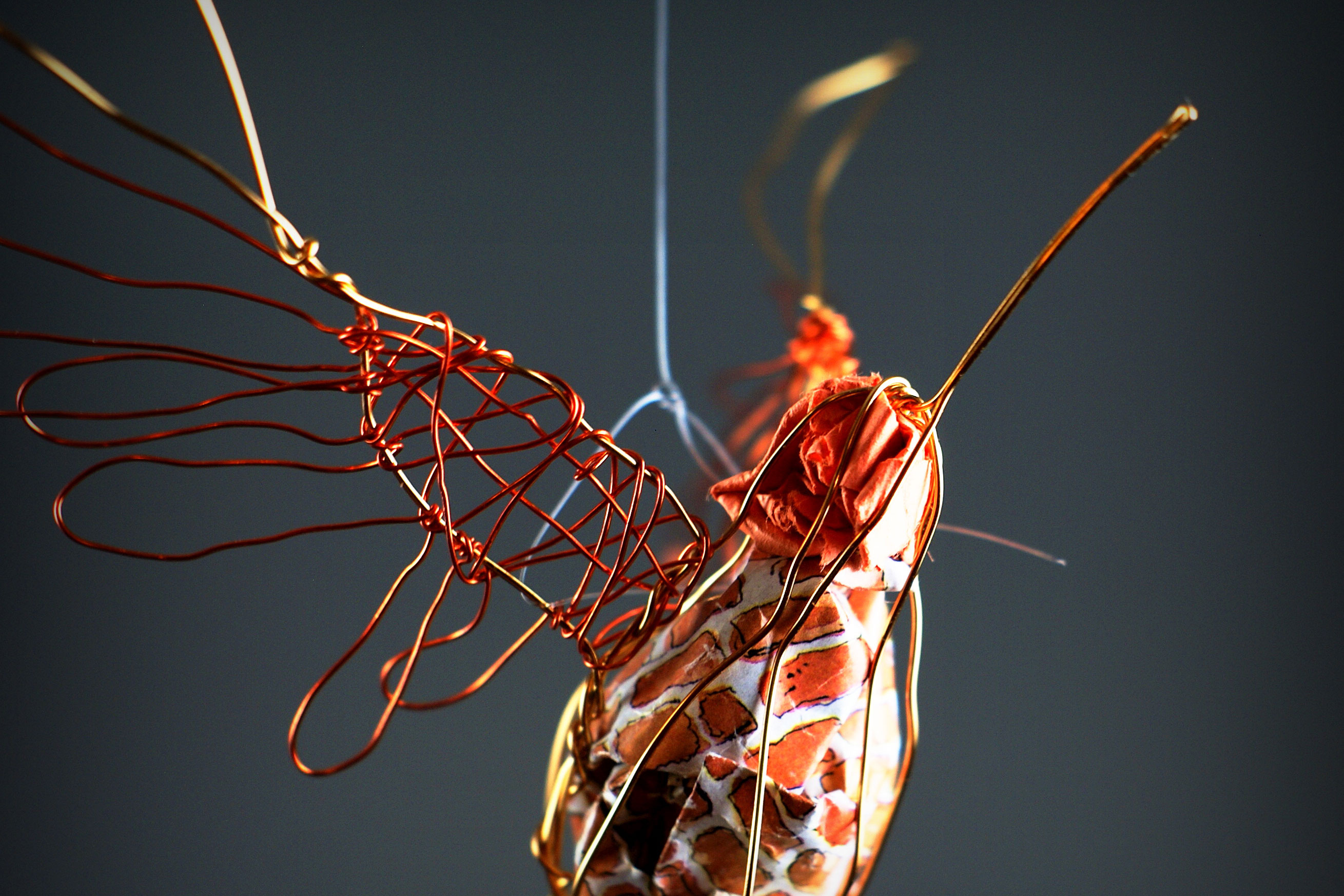
Vuelo Sin Fronteras / Flight Without Borders
November 12, 2022–January 8, 2023 | Collection Galleries
This year, the Taft invited three local artists— Gabriela Falconi-Piedra, Pedro Moreno, and Fabiola Rodríguez Ornelas—to decorate a six-foot holiday tree in the museum’s Duncanson Foyer. The artists were born in Ecuador, Bolivia, and Mexico, respectively. Their installation features a fantastic array of paper and fabric birds, butterflies, and flowers, and a paper nest to explore the concepts of migration, belonging, and diversity.
The Taft collaborated on this project with Wave Pool Art Center’s Welcome Project, which seeks to empower Cincinnati’s refugee and immigrant population while connecting, assisting, and inspiring all through art and food.
LEARN MORE
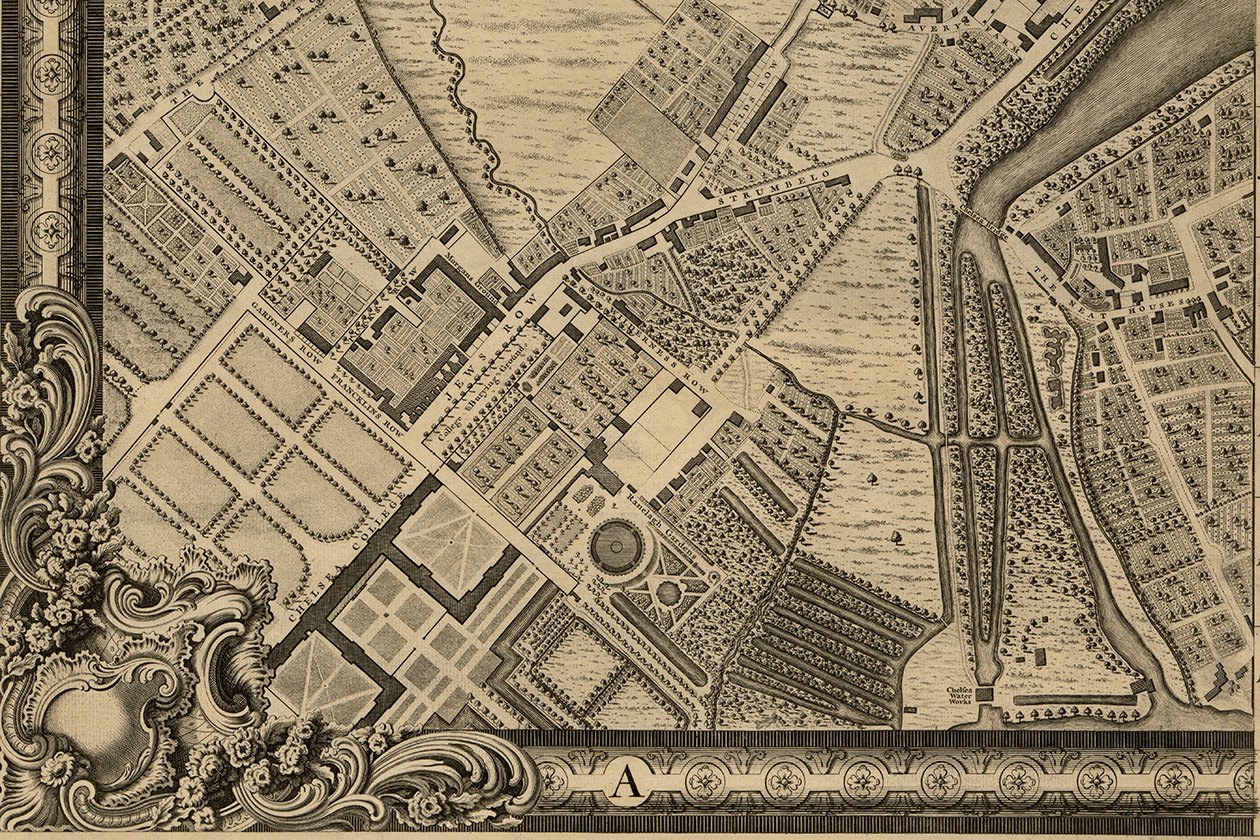
John Rocque, surveyor (France, active 1734–62) and John Pine, engraver (England, 1690–1756), A Plan of the Cities of London and Westminster, and Borough of Southwark; with the Contiguous Buildings, 1737–46, engraving on 24 sheets of rag paper, mounted on cotton muslin. Lent by the Estate of Sallie Robinson Wadsworth
Jane Austen in London: A Wall-Sized Map
June 11–October 9, 2022 | Sinton Gallery
Measuring 7 by 13 feet, this map was made in the mid-1700s, about fifty years before Jane Austen began writing her celebrated novels. While Austen’s stories take place mostly in the English countryside, this exhibition will illustrate London locations from both her fiction and her life. Journey past the Houses of Parliament, Westminster Abbey, and St. Paul’s Cathedral—as well as through cow pastures, timber yards, and waterworks—as you trace your way through the metropolis and its environs. This massive work on paper represents a monumental achievement in cartography, or mapmaking. It also offers a rare opportunity to experience the history of one of the world’s great cities and its connections to one of the world’s great authors. Lent by the Estate of Sallie Robinson Wadsworth.
LEARN MORE
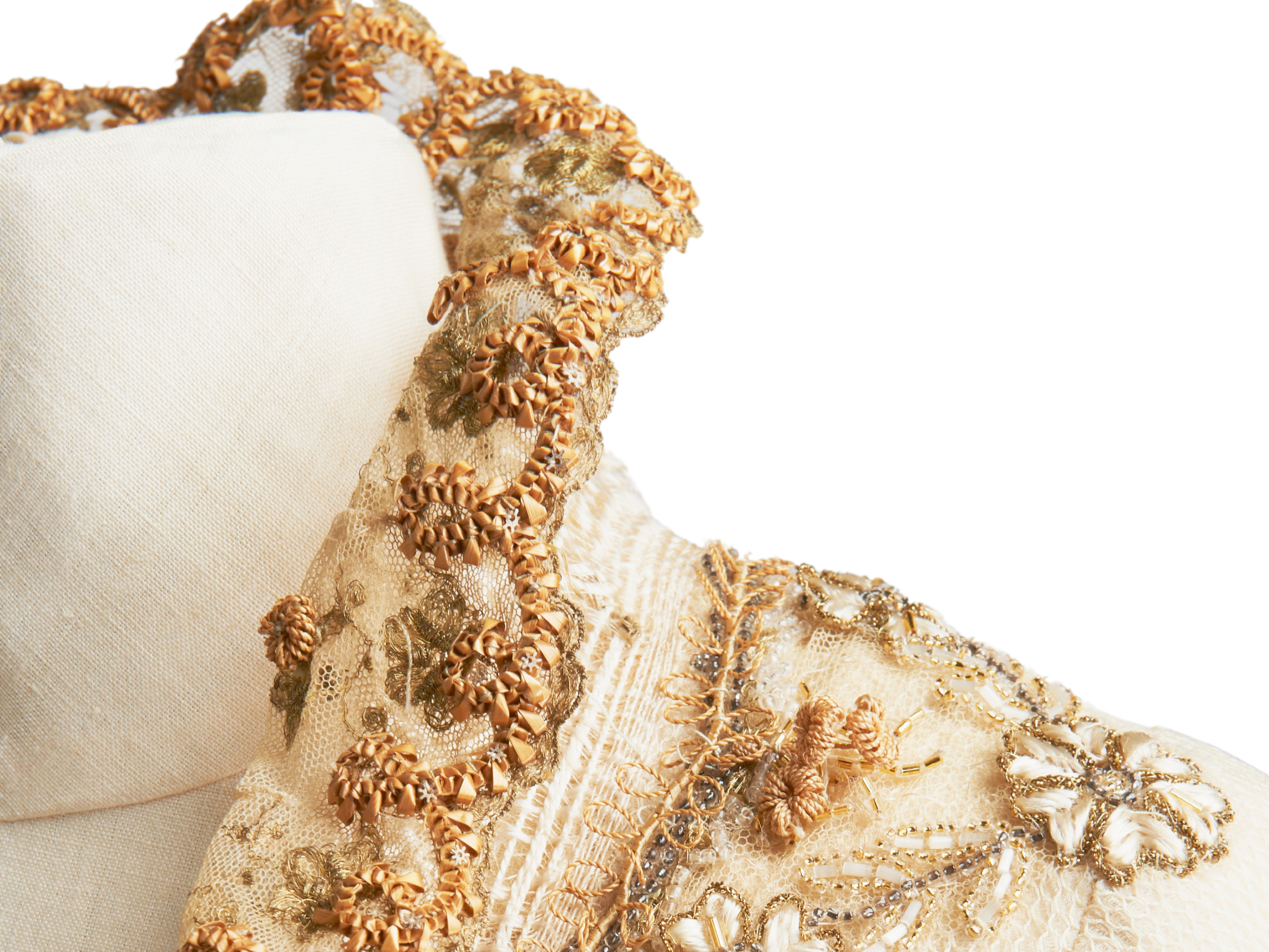
Wedding Dress, Sense and Sensibility, 1995, Ang Lee, director. Worn by Kate Winslet as Marianne Dashwood. Jenny Beavan and John Bright, costume designers
Jane Austen: Fashion & Sensibility
June 11–September 4, 2022 | Fifth Third Gallery and Collection Galleries
Jane Austen’s novels have been cherished by millions of readers for two hundred years. Her classic stories have reached many others as adaptations for the screen. Jane Austen: Fashion & Sensibility features approximately forty costumes and accessories worn in popular film and television productions. Drawn from the collection of award-winning British costume house Cosprop Ltd., these meticulously tailored ensembles will transport you to the Regency era through ball gowns, wedding dresses, day dresses, hats, jackets, waistcoats, riding habits, and other middle- and upper-class clothing. Fashion & Sensibility provides an unforgettable opportunity to see, up close, costumes worn by Hollywood celebrities including Kate Winslet, Emma Thompson, Gwyneth Paltrow, Judi Dench, Colin Firth, and Hugh Grant. The exhibition brings to life beloved characters from Sense and Sensibility, Pride and Prejudice, Emma, and Mansfield Park, while revealing powerful themes of class, gender, and social dynamics in Austen’s world.
Presented by Exhibits Development Group, USA, in cooperation with Cosprop Ltd., London, England
LEARN MORE
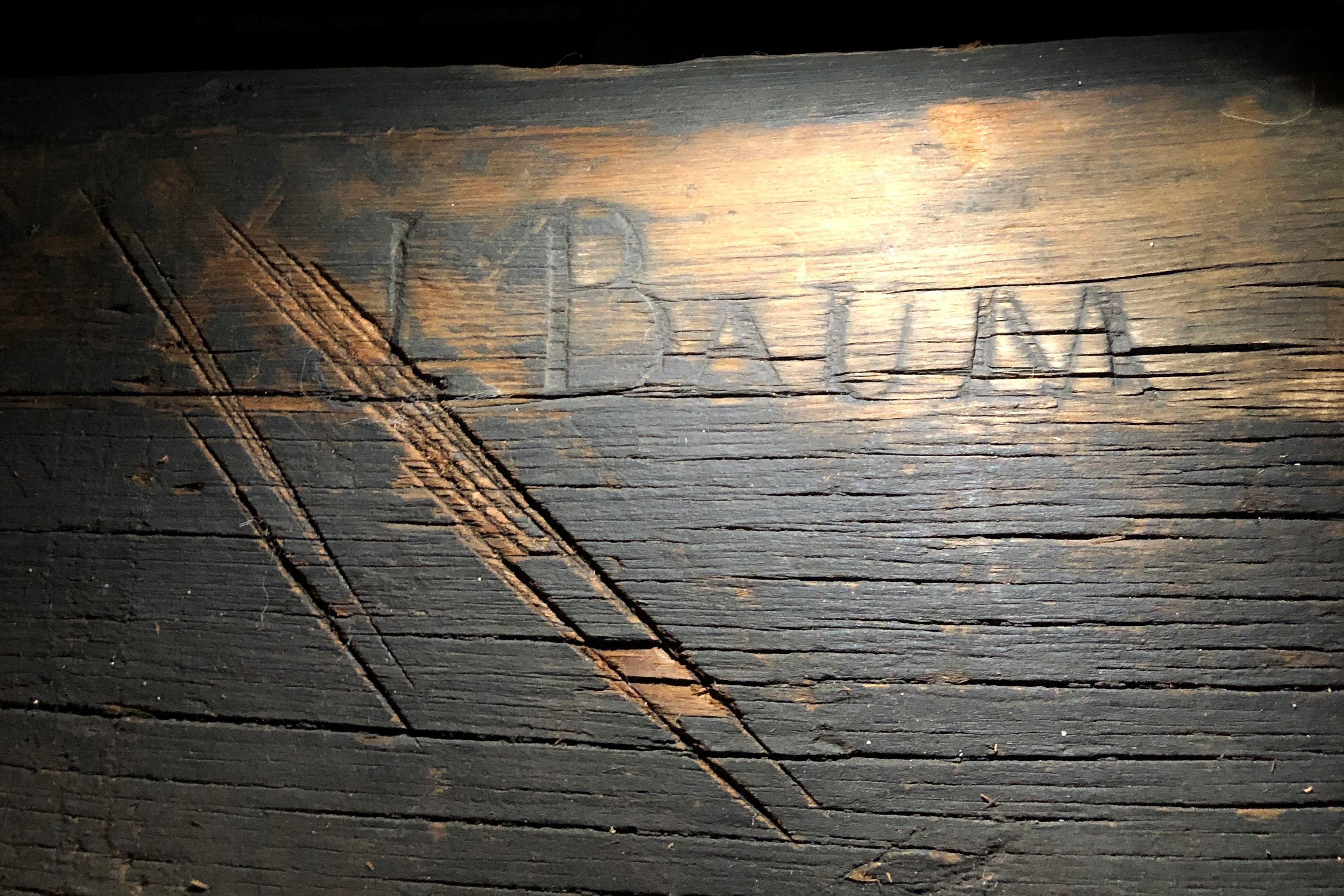
“J. Baum” inscribed inside the roof of the Taft Museum of Art’s portico
Love This House: Preserving a National Historic Landmark
June 11–September 4, 2022 | Outside Fifth Third Gallery
In 2021–22, the Taft Museum of Art partnered with GBBN Architects and HGC Construction to preserve the exterior of the Baum-Longworth-Sinton-Taft house, a National Historic Landmark. The house was built around 1820, making it downtown Cincinnati’s oldest wooden residence in its original location. Investigation prior to the project revealed significant water damage to the wooden siding and the structure beneath. In this small display, learn more about how the house has been preserved for future generations, and how the project will also help protect the art collection within.
LEARN MORE
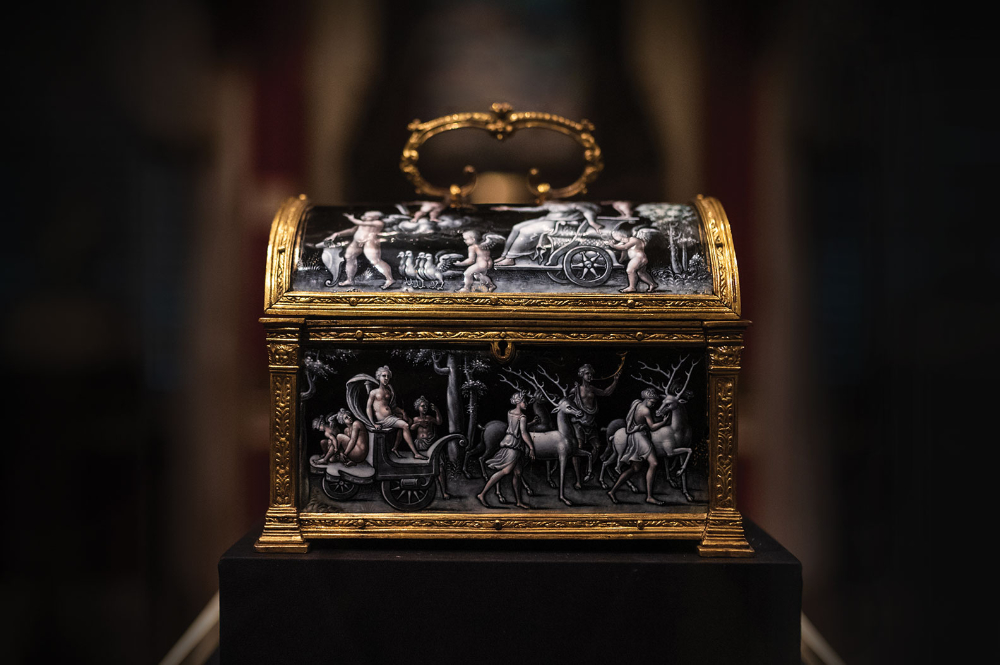
In a New Light | Treasures from the Taft
July 3, 2021–May 1, 2022 | Fifth Third Gallery
In a New Light explores a broad range of eras, cultures, and art forms through their historical context, subject matter, materials, and makers. European decorative arts and Chinese porcelains dazzle the eye with their intricate designs and brilliant colors. Nineteenth-century American furniture impresses us with its stately elegance. European and American portraits and landscape paintings show off the mastery of some of the greatest artists of the past. Through select works, the exhibition reveals centuries-old social concerns such as the distribution of wealth, environmental destruction, and gender and racial inequality.
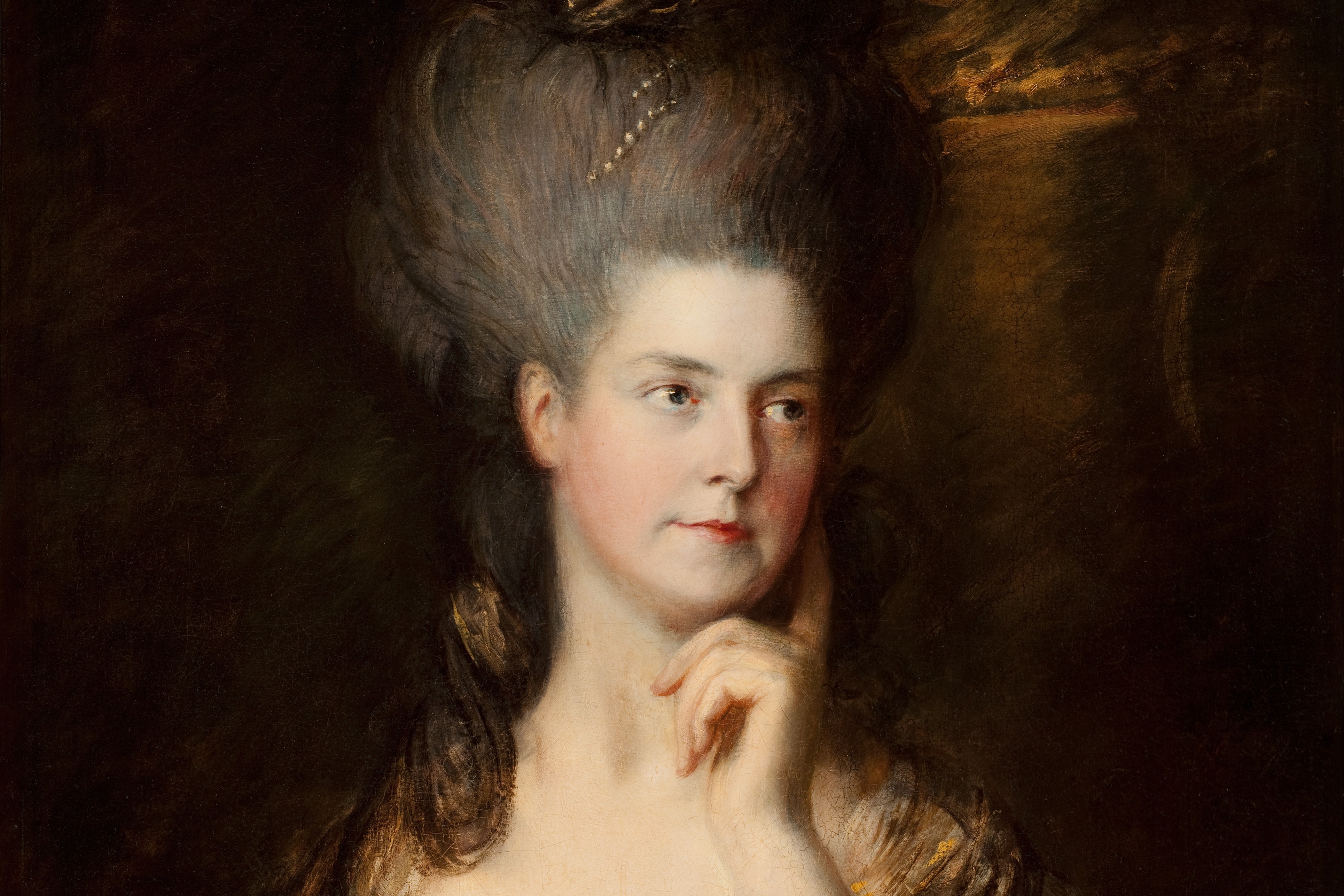
Thomas Gainsborough (English, 1727–1788), Maria Walpole, Duchess of Gloucester, about 1779, oil on canvas. Taft Museum of Art, 1931.406
Borrowed Gems from the Taft Museum of Art
July 23, 2021–February 21, 2022 | Cincinnati Museum Center
The Taft Museum of Art shares more than 40 works of art with audiences at the Cincinnati Museum Center. Borrowed Gems tells the story of the Tafts’ collection and its impact on the Cincinnati community. Portraits, landscape paintings and decorative art reveal how the collection inspired Cincinnati artisans to create beautiful objects of their own. Through their vision as art collectors and philanthropists, Charles and Anna Taft left a legacy that continues to inspire each generation anew.
Learn More
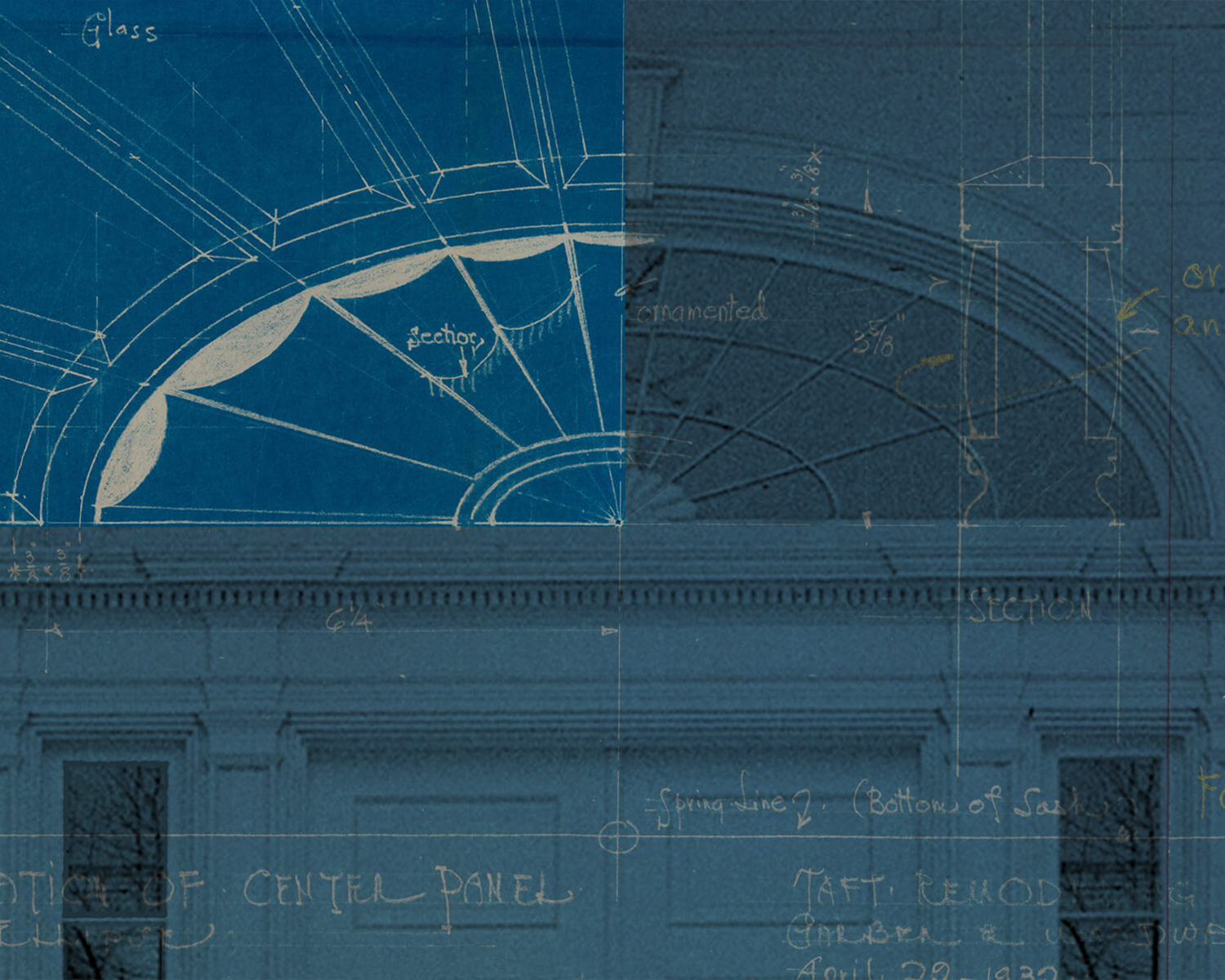
Built to Last: The Taft Historic House at 200
July 10, 2020–June 6, 2021 | Sinton Gallery
Explore the history of downtown Cincinnati’s oldest surviving wooden residence still in its original location. The Baum-Longworth-Sinton-Taft historic house turns 200 this year! Constructed around 1820 by entrepreneur Martin Baum, the National Historic Landmark became a public museum in 1932 to house the exceptional art collection of its final residents, Charles Phelps Taft and Anna Sinton Taft.
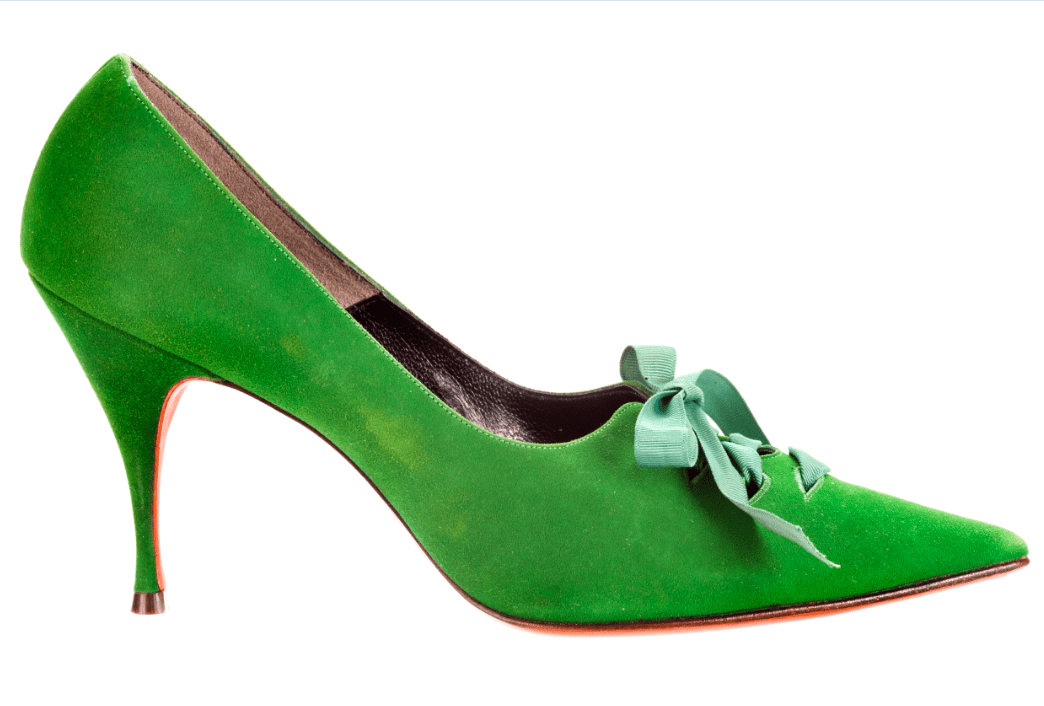
Walk This Way: Footwear from the Stuart Weitzman Collection of Historic Shoes
February 27–June 6, 2021 | Fifth Third Gallery
From silk boudoir shoes created for the 1867 Paris Exposition to leather spectator pumps signed by the 1941 New York Yankees, Walk This Way features more than 100 striking pairs of shoes. Organized by the New-York Historical Society, this exhibition presents footwear—spanning nearly 200 years—from the collection of high-fashion shoe designer Stuart Weitzman. Weitzman’s wife, businesswoman and philanthropist Jane Gershon Weitzman, formed and added to the collection as a gift to her husband over their 50 years of marriage.
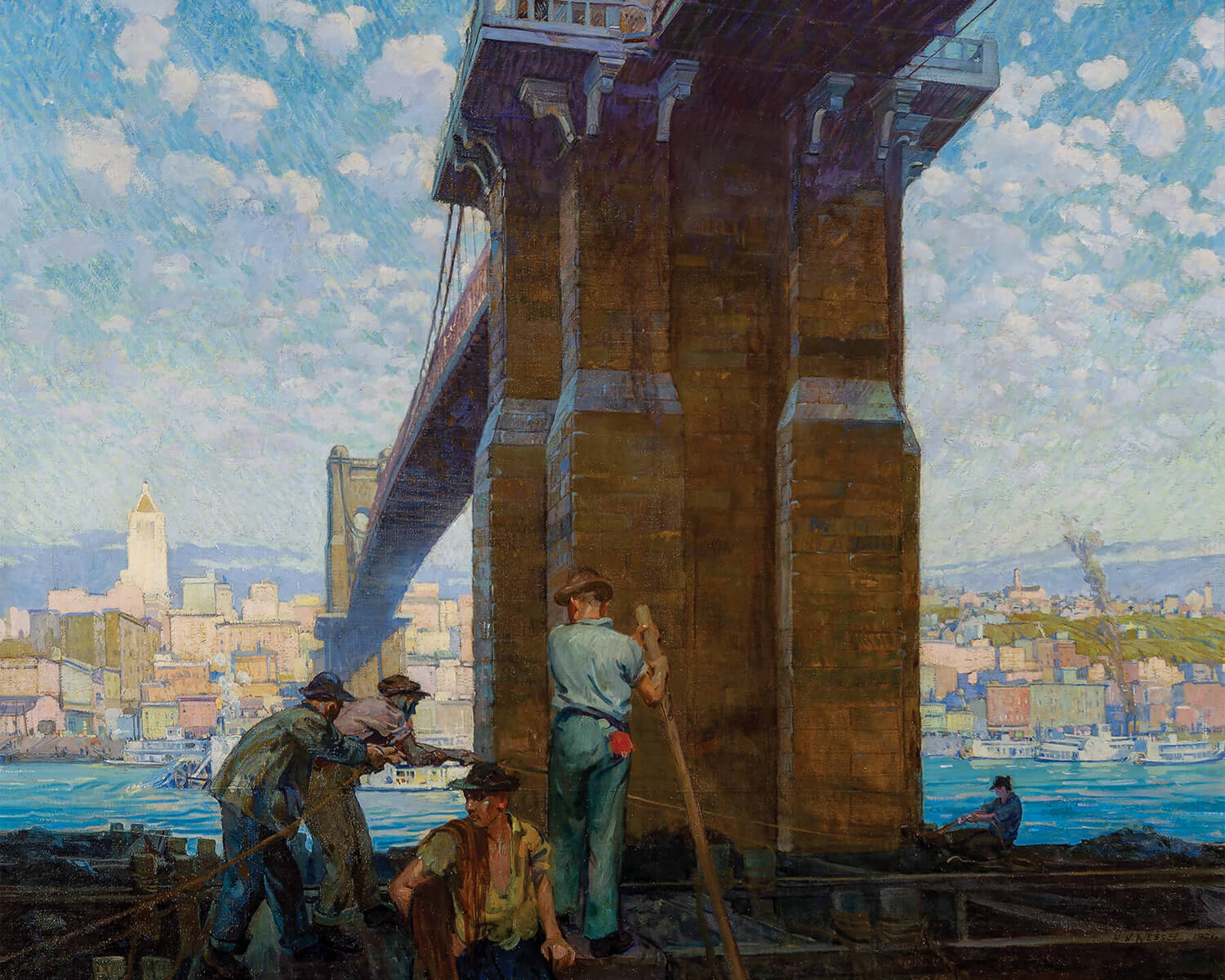
A Splendid Century: Cincinnati Art 1820–1920
October 3, 2020–January 24, 2021 | Fifth Third Gallery
Two hundred years ago, a grand white mansion was built on the eastern edge of Cincinnati. Over the first half of its life, the building housed some of the city’s most prominent families, finally becoming an art museum in 1932. A Splendid Century celebrates the bicentennial of the house that is now the Taft Museum of Art. The exhibition features Cincinnati art and artists spanning the first 100 years of the house’s existence.

Joyful Expressions
November 27, 2020 – January 3, 2021 | Music Room
Every year, audiences look forward to creatively inspired holiday decorations at the Taft with ties to heritage and traditions. This year award-winning fiber artist, Cynthia Lockhart, is helping ensure this tradition lives on while embracing the creation of new ways to spark holiday joy in a difficult year.
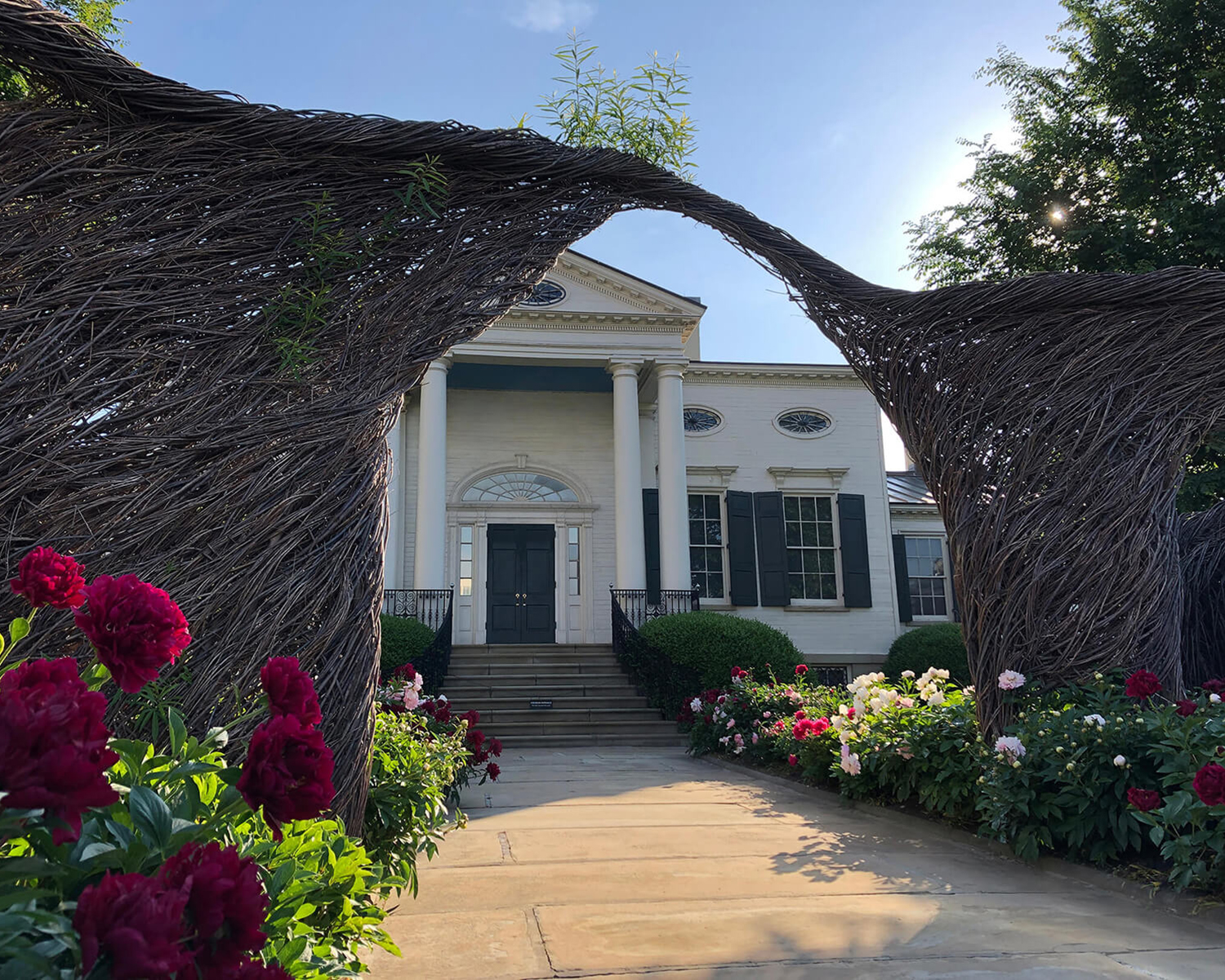
Far Flung
May 2018–August 2020 | Front Lawn
The Taft Museum of Art was home to a unique fantasy experience brought to life by world-renowned sculptor Patrick Dougherty. Dougherty took six tons of willow tree saplings and twisted and turned them—with the amazing help of more than 150 community volunteers—into whimsical, whirling shapes.
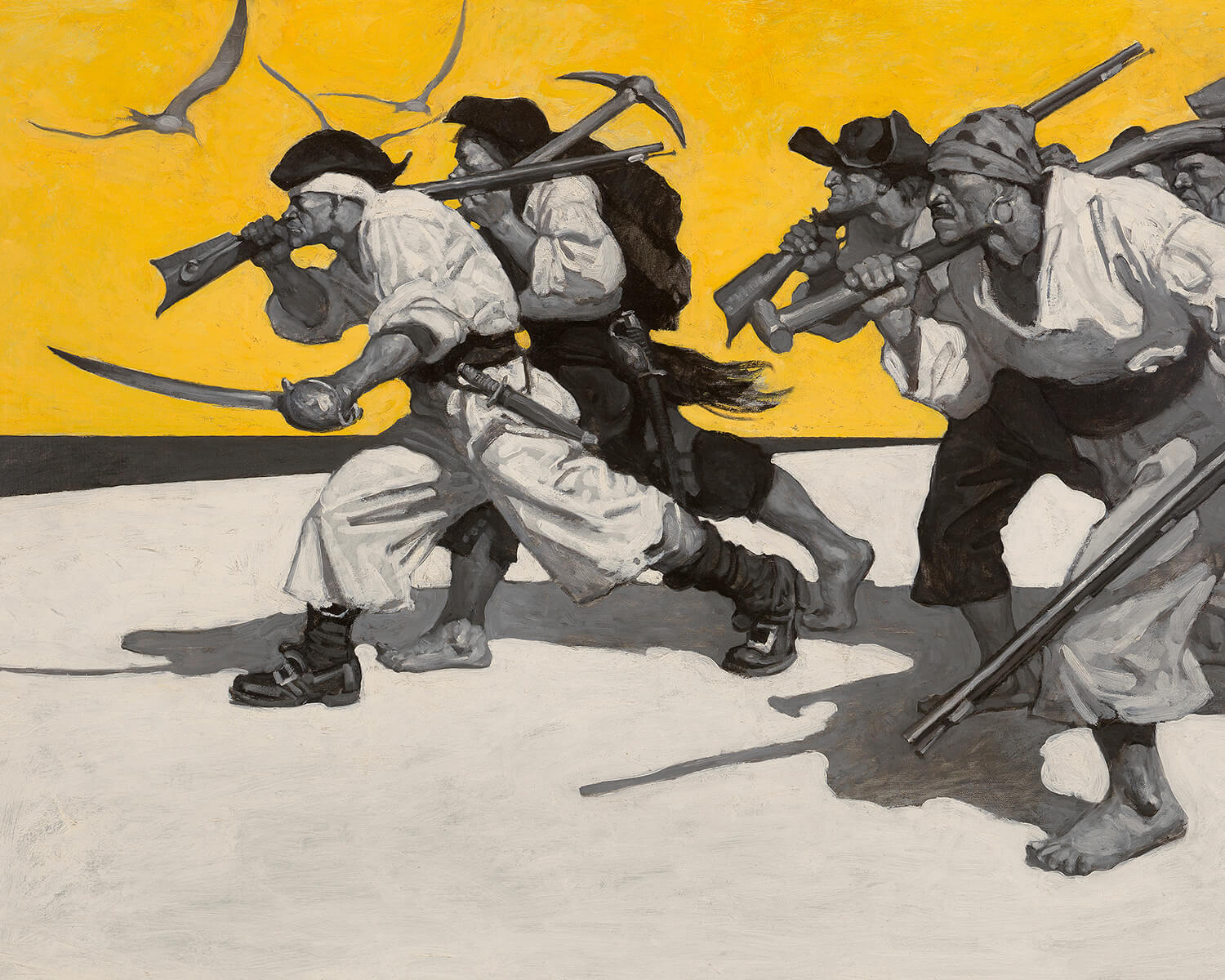
N. C. Wyeth: New Perspectives
February 8–May 3, 2020 | Fifth Third Gallery
This exhibition showcases the work of N. C. Wyeth (1882–1945), the patriarch of one of America’s most prominent artistic families. Co-organized by the Brandywine River Museum of Art in Chadds Ford, Pennsylvania and the Portland Museum of Art in Maine, this exhibition brings together approximately 50 large-scale paintings spanning several decades. Many of Wyeth’s grand images bring to life stories in Treasure Island, The Last of the Mohicans, The Boy’s King Arthur, and Rip Van Winkle. However, Wyeth deserves much greater appreciation for his little-known fine art paintings. New Perspectives revises his reputation by also highlighting his private work.
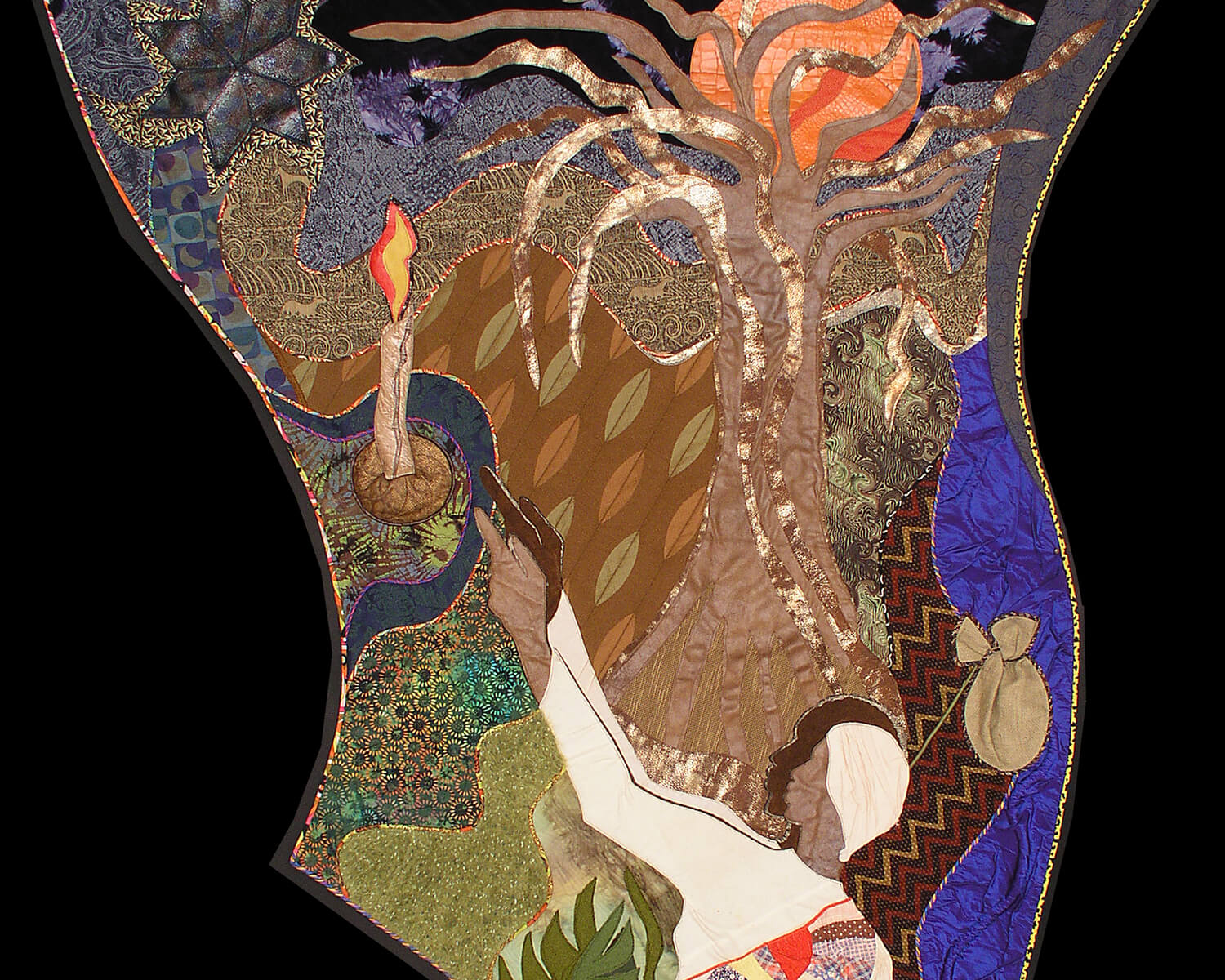
Journey to Freedom: Art Quilts by Cynthia Lockhart
December 13, 2019–March 15, 2020 | Sinton Gallery
Cynthia Lockhart’s textile creations invite viewers to embark on a journey of discovery. Composed of colorful fabrics arranged in dynamic patterns, her fiber art tells a story—one that encourages people to more deeply understand the diversity of people, cultures, and beauty in the world around them. Lockhart’s exhibition, Journey to Freedom, tells heroic and joyful stories of her ancestors, celebrating a strong people who endured many injustices. The works in the show also pose questions about the perceptions of freedom in America. Lockhart hopes that her art serves as a catalyst for individuals to continue to be inspired to dream, dance, sing, and shout their way forward to unbounded possibilities of freedom.
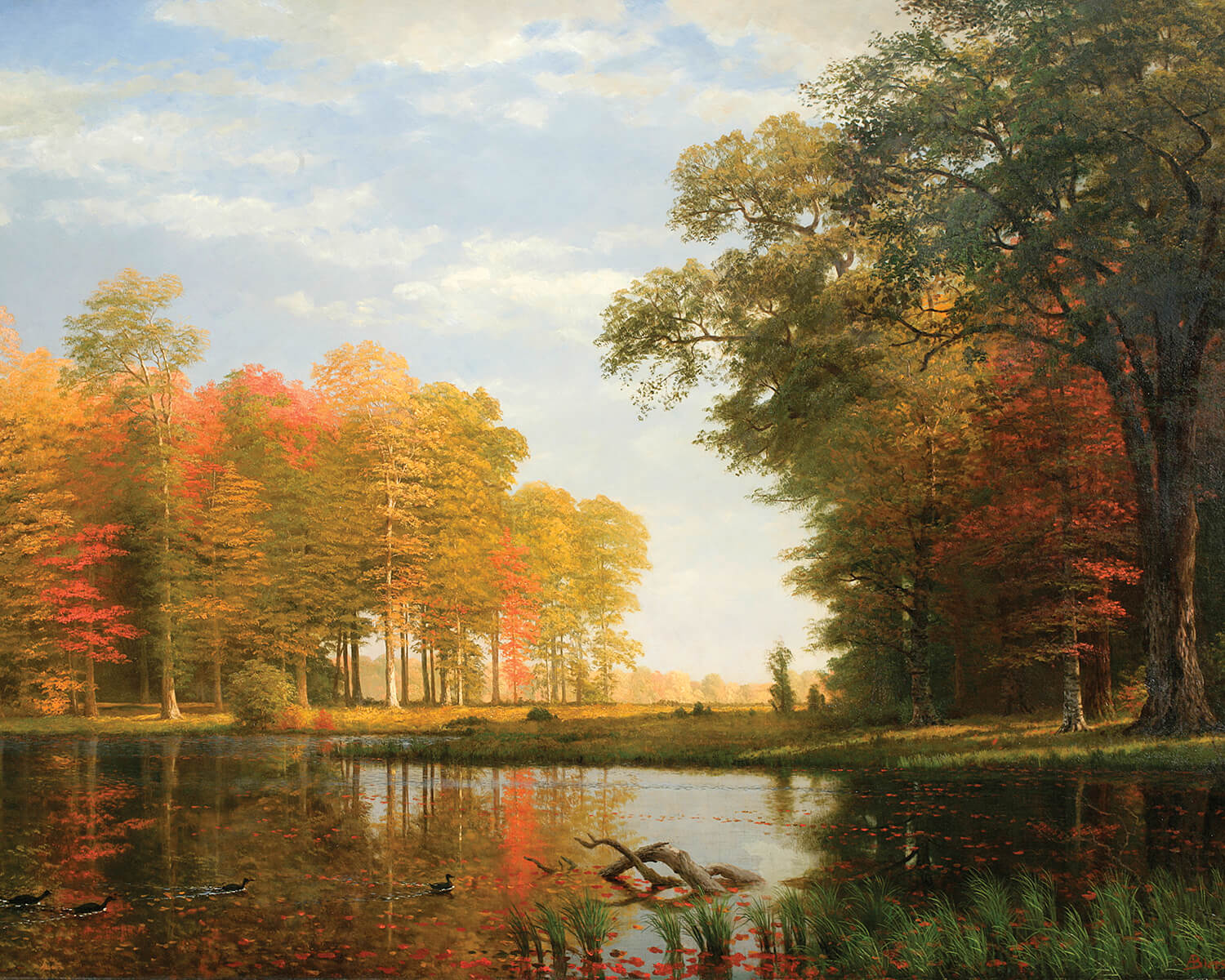
The Poetry of Nature: Hudson River School Landscapes from the New-York Historical Society
October 5, 2019–January 12, 2020 | Fifth Third Gallery
The paintings in The Poetry of Nature reveal the natural wonders that sparked the first artistic movement in the United States. Sketching outdoors and composing their ideal visions of the landscape in their studios, these artists filled their canvases with majestic mountains, tranquil valleys, enchanting forests, shimmering lakes, and luminous skies. Works by well-known artists including Thomas Cole, Asher B. Durand, Jasper Francis Cropsey, and Sanford Robinson Gifford join lesser-known gems by Louisa Davis Minot and William Louis Sonntag—who began his career in Cincinnati—to paint a picture of America’s promise embodied in landscape.
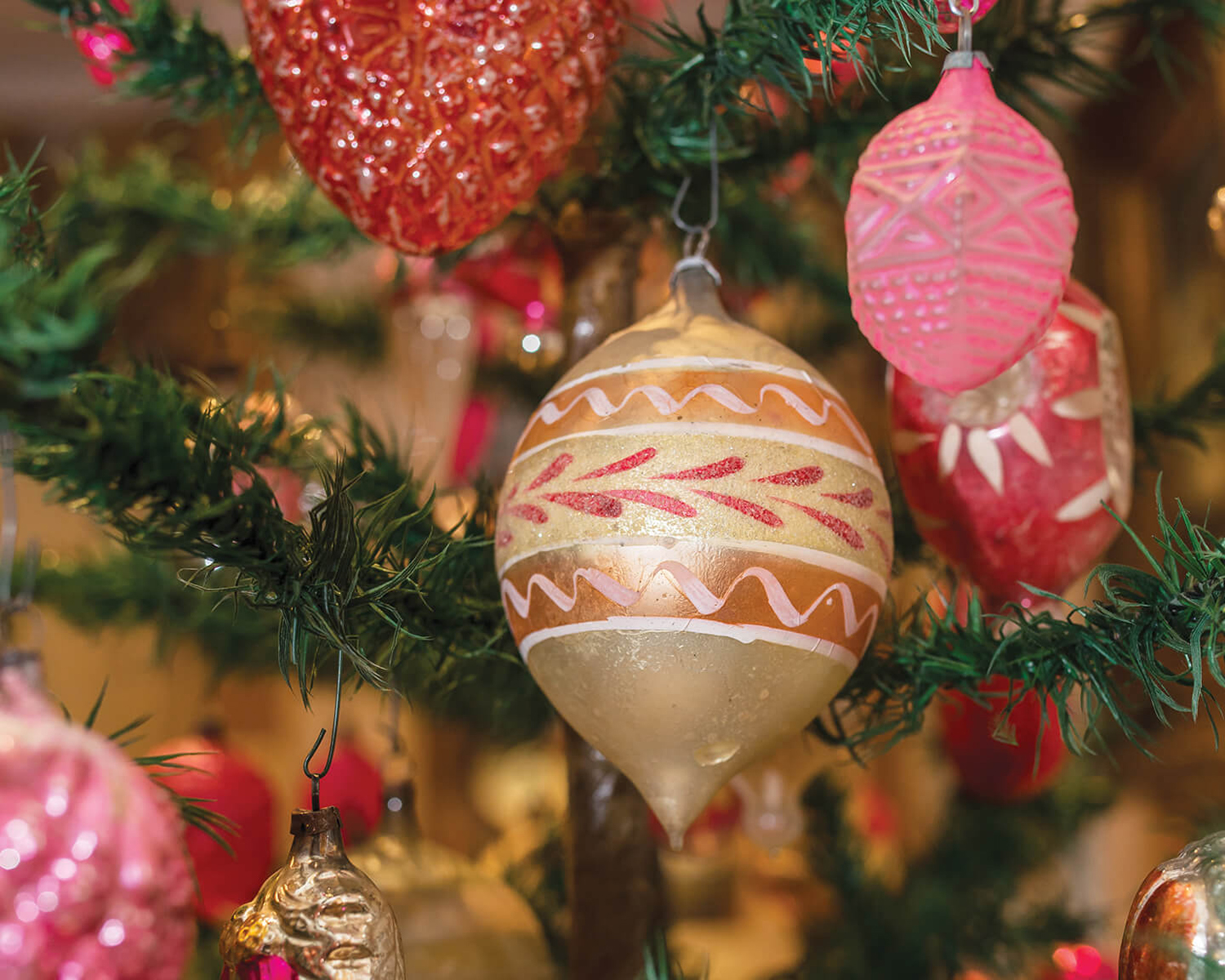
Antique Christmas
November 8, 2019–January 5, 2020 | Baum-Longworth-Sinton-Taft House
Enjoy a glimpse of Christmas past at the Taft Museum of Art’s annual exhibition of holiday treasures. Visitors will find beautiful decorations throughout the historic house, thanks to generous collectors from Cincinnati and beyond. This year, guests can expect a number of new and exciting displays, including several feather trees with decorations ranging from vintage Disney ornaments to characters from German fairy tales. Figures of the jolly old elf will also be on view under a large tree adorned with antique paper, chenille, and glass ornaments.
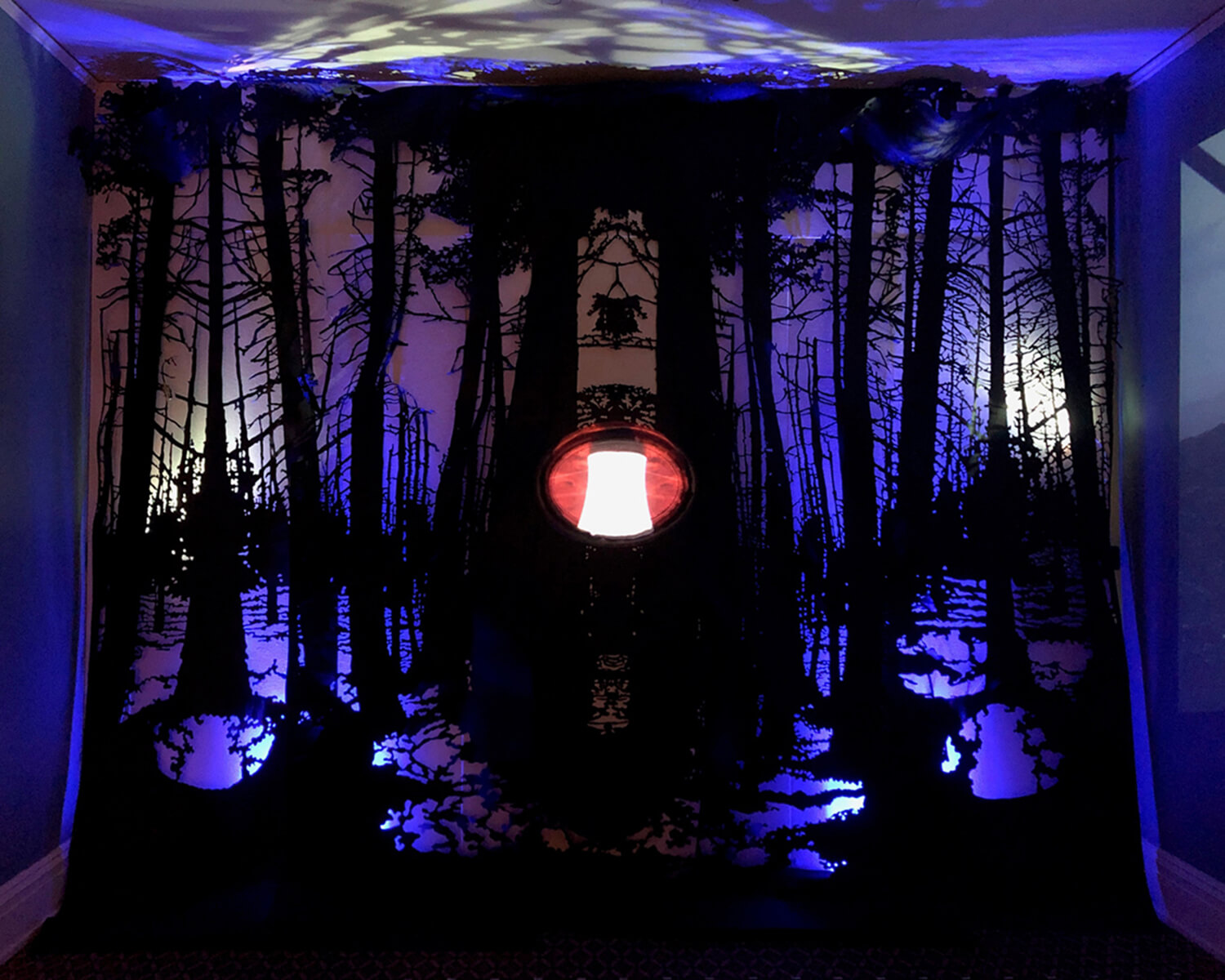
Fearful Symmetry: A Multimedia Installation by Alice Pixley Young
August 30–December 1, 2019 | Sinton Gallery
Multimedia artist Alice Pixley Young’s immersive installations bring together a wide range of materials including cut paper, cast glass, ash, and salt, intermingled with video projections, sound, light, and shadow. Her work invokes 19th-century landscape traditions while examining environmental change in today’s natural world.
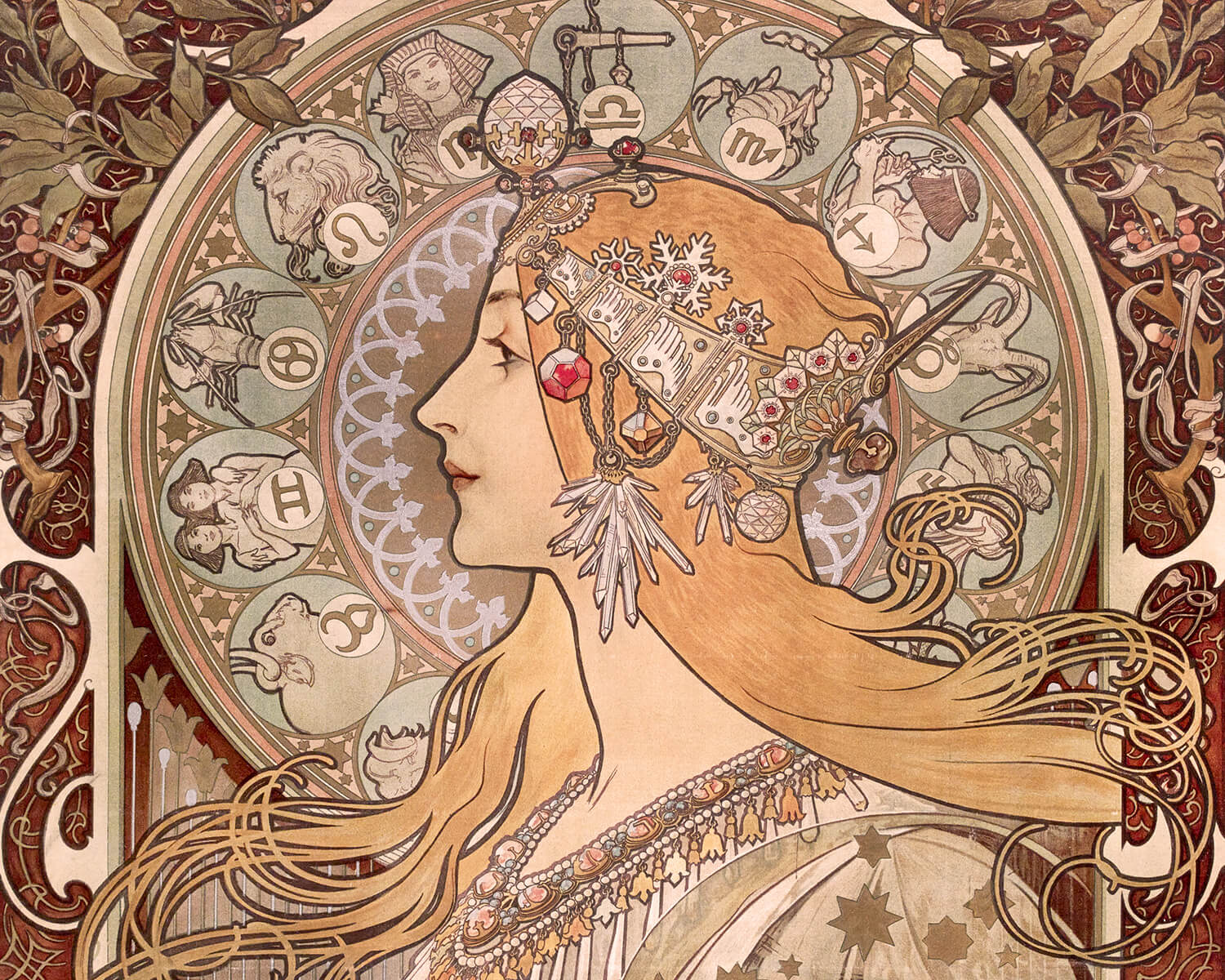
L’Affichomania: The Passion for French Posters
June 8, 2019–September 15, 2019 | Fifth Third Gallery
Meant to stop people in their tracks with bold colors and seductive imagery, French advertising posters of the turn of the 20th century ultimately became highly collectible works of art. L’Affichomania: The Passion for French Posters presents the work of five innovative artists: Jules Chéret, Eugène Grasset, Théophile-Alexandre Steinlen, Alphonse Mucha, and Henri de Toulouse-Lautrec.
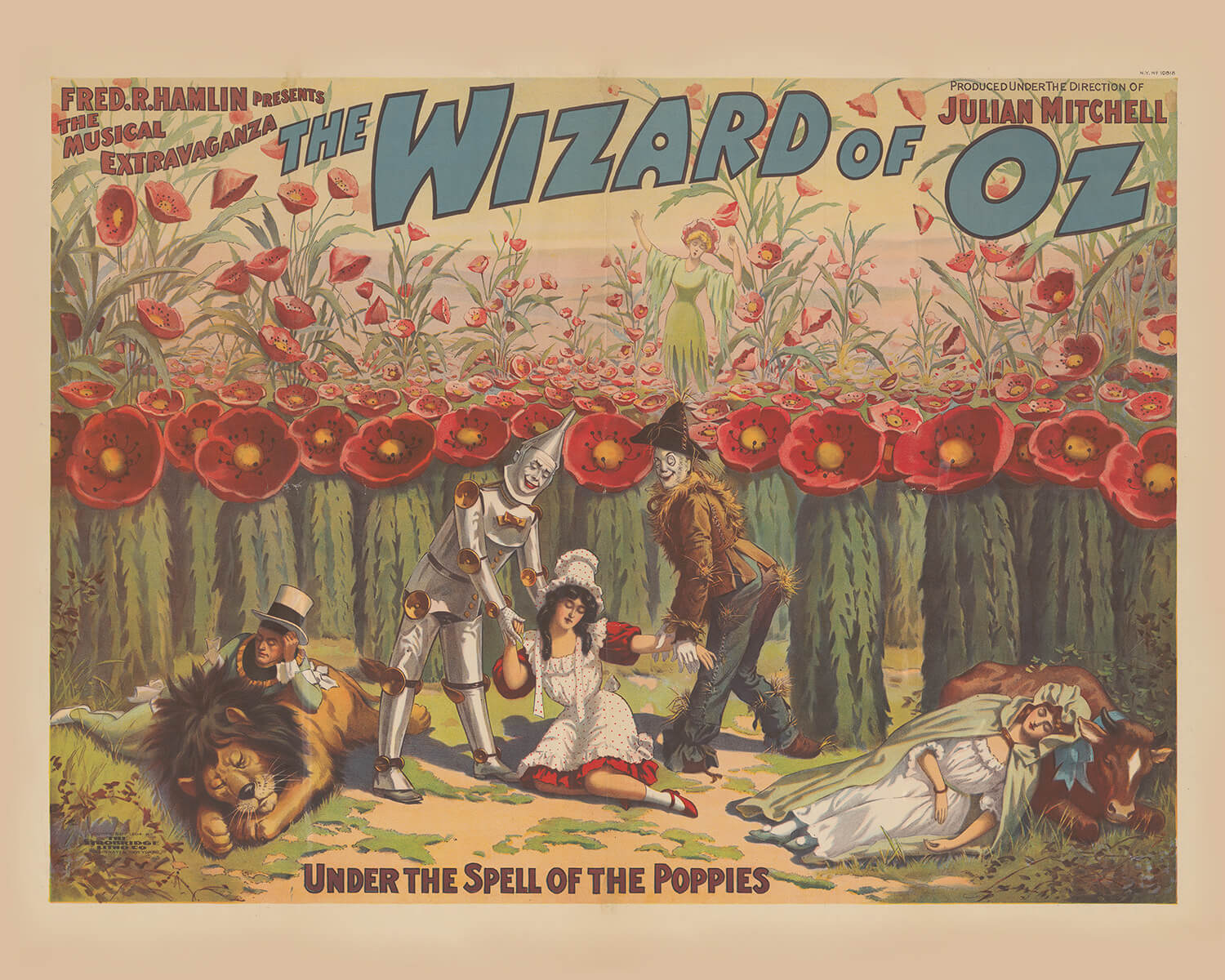
Magic & Melodrama: Cincinnati Posters from the Gilded Age
May 3–August 18, 2019 | Sinton Gallery
At the turn of the 20th century, traveling actors, illusionists, and theatrical producers promoted live performances with brilliantly colored printed outdoor advertisements. This exhibition features seven theater posters from the collection of the Public Library of Cincinnati and Hamilton County.
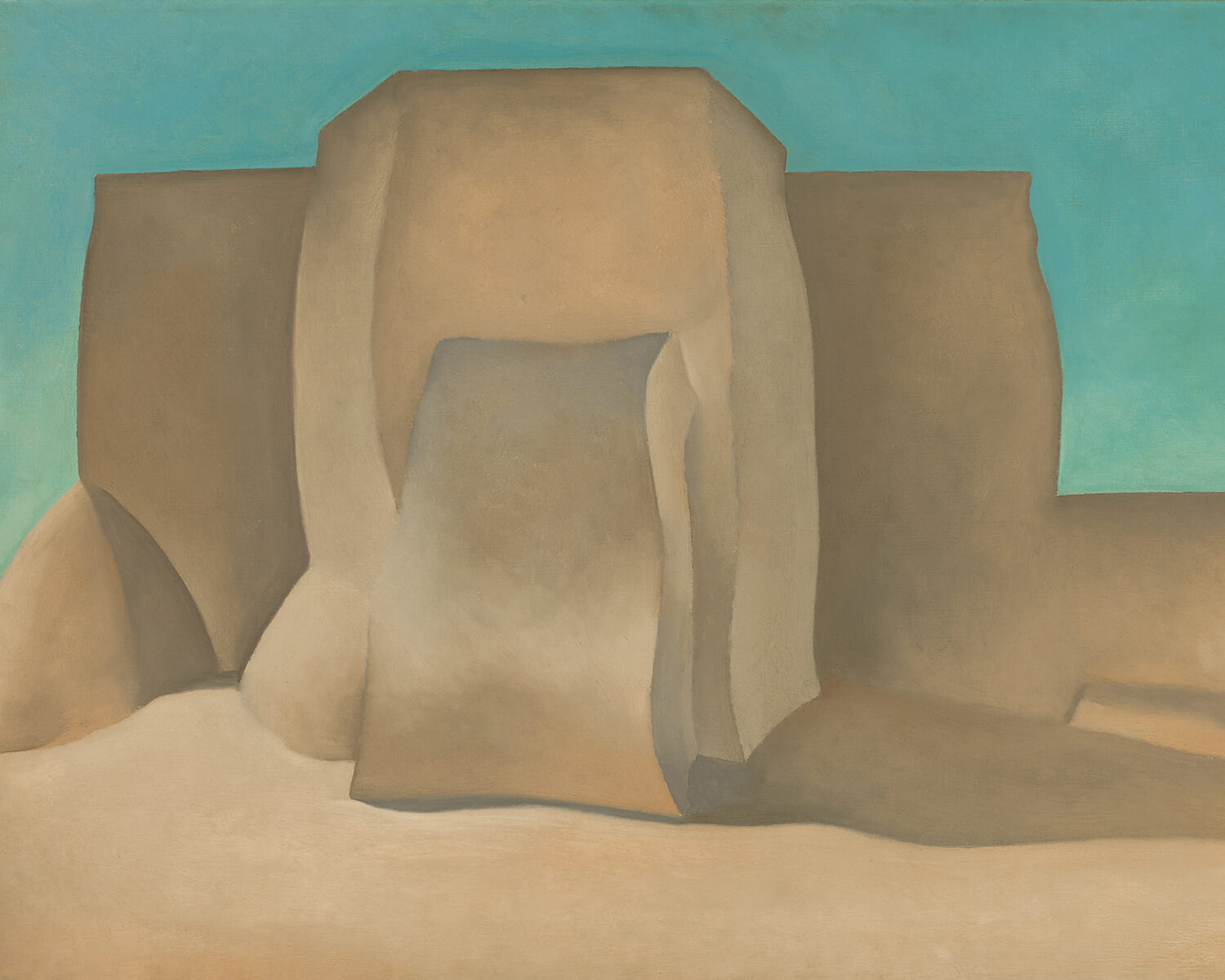
Winslow Homer to Georgia O’Keeffe: American Paintings from The Phillips Collection
February 9–May 19, 2019 | Fifth Third Gallery
Winslow Homer to Georgia O’Keeffe traces a century of the modern creative spirit in the United States, ranging from realistic landscapes to bold abstract forms. Fifty-five works by American masters—including Thomas Eakins, Winslow Homer, Edward Hopper, Georgia O’Keeffe, and Helen Frankenthaler—span the 1860s through the 1960s.
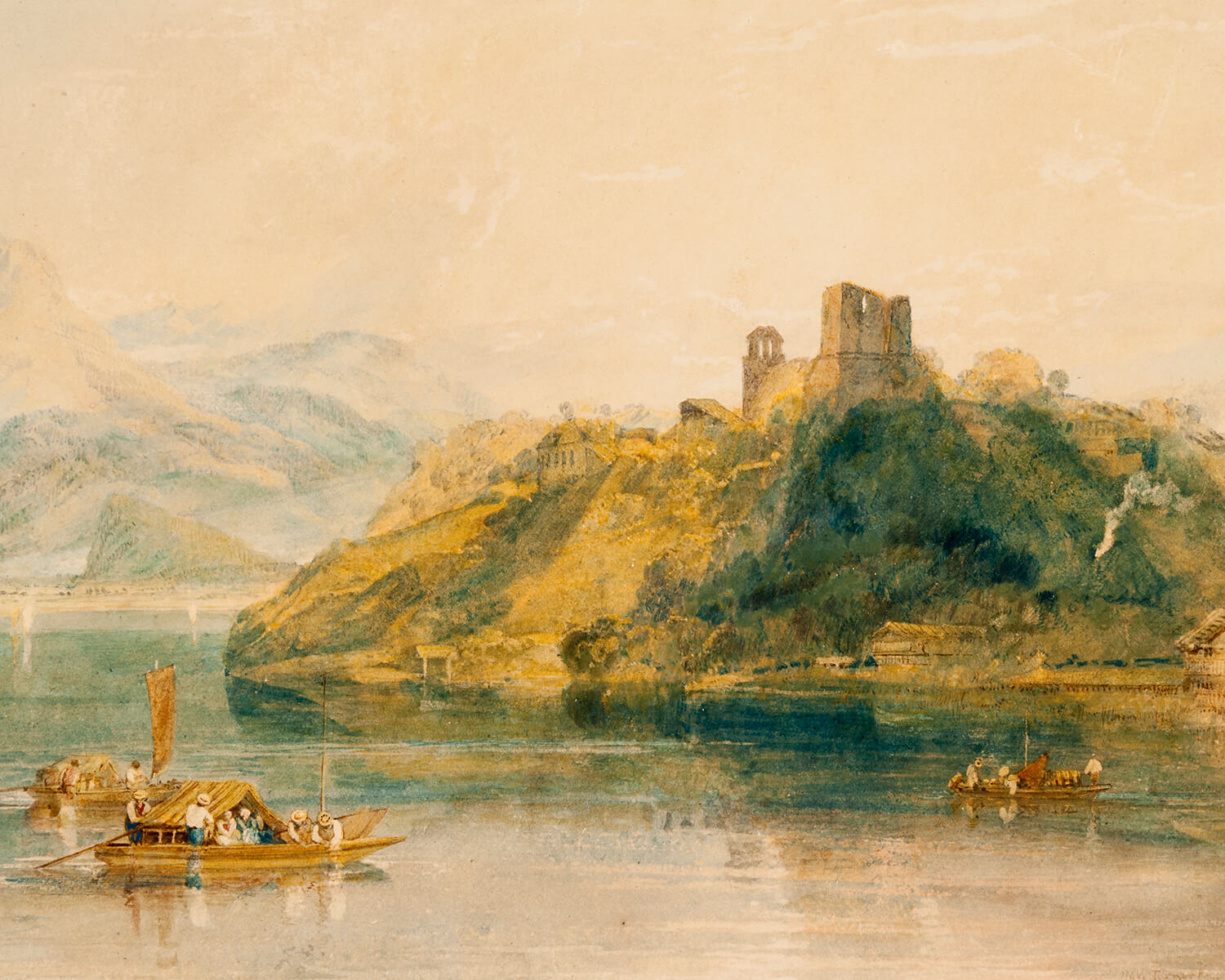
Travels with Turner: Watercolors from the Taft Collection
January 18–April 14, 2019 | Sinton Gallery
Follow nineteenth-century British painter J. M. W. Turner on his travels throughout the United Kingdom and Europe—through his watercolors and an interactive digital map. This exhibition of the Taft Museum of Art’s ten watercolors by Turner focuses on the places he painted, including dramatic landscapes from Switzerland, Germany, France, England, Scotland, and Italy.
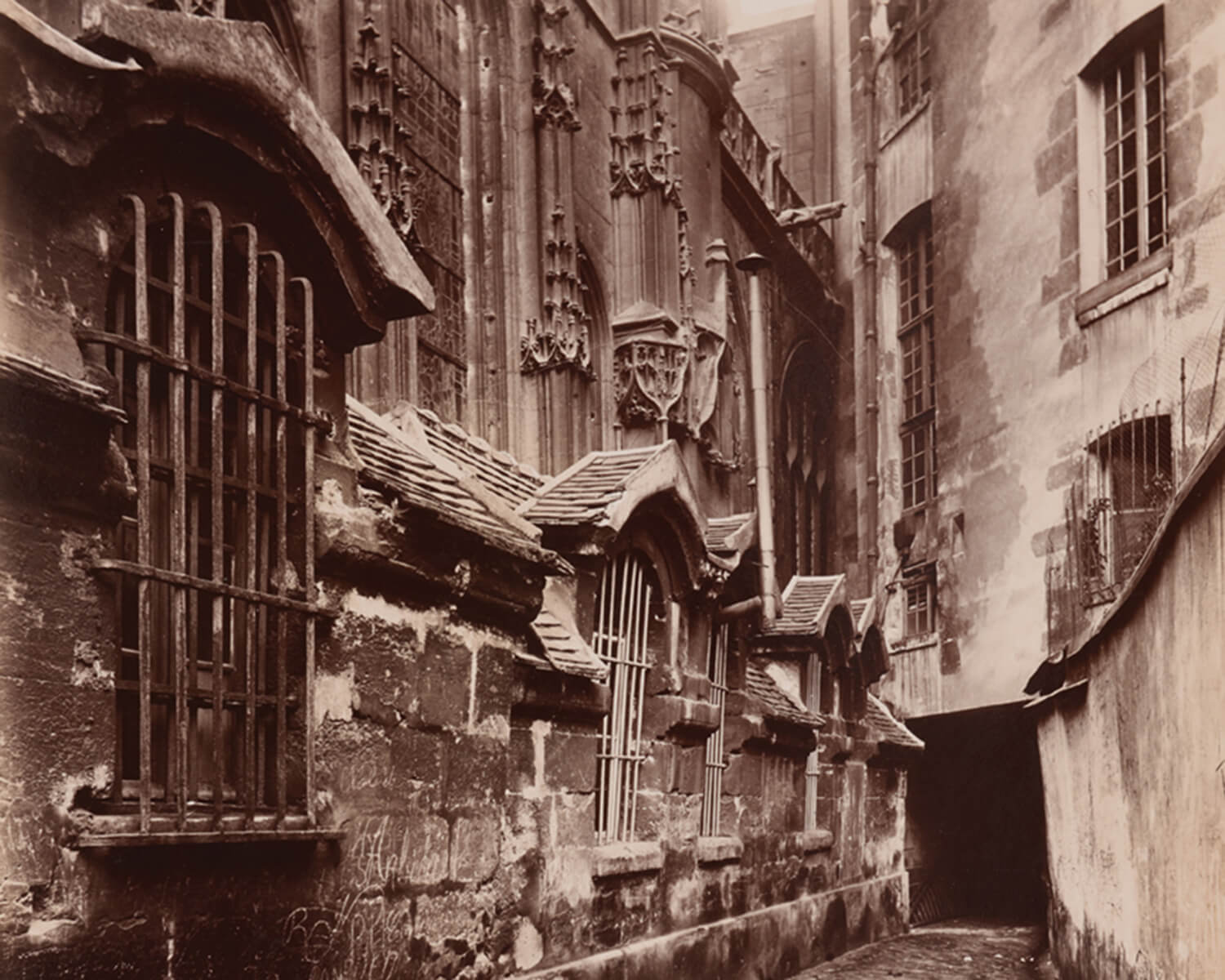
Paris to New York: Photographs by Berenice Abbott and Eugène Atget
October 6, 2018–January 20, 2019 | Fifth Third Gallery
In Paris in the 1920s, the young American photographer Berenice Abbott (1898–1991) encountered the elderly French photographer Eugène Atget (1857–1927). Their contact would have profound and lasting effects on the careers and legacies of both artists. Through a sequence of riveting and often iconic images, the exhibition elaborates the relationship between Abbott’s and Atget’s photography.
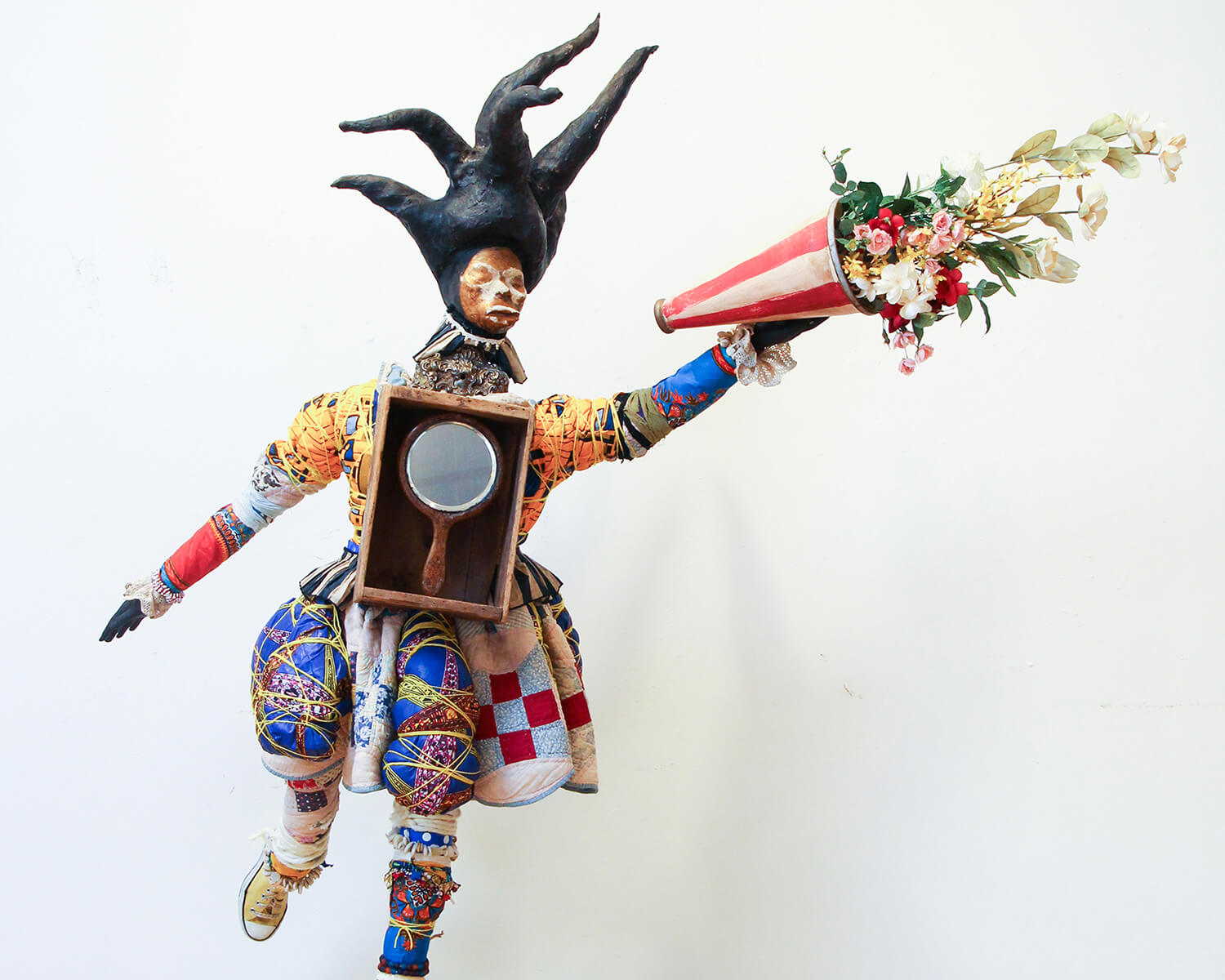
vanessa german: running with freedom
July 13–October 21, 2018 | Sinton Gallery and Longworth Foyer
Vanessa German empowers people through visual art and performance. German’s mixed-media sculptures and reliefs will be featured as part of the Duncanson Artist-in-Residence Program. Constructed from found objects including doll parts, antique tins, beads, household items, and other cast-off relics, her “power figures” evoke folk art traditions, religious icons, and African nkisi nkondi—ritual figures carved from wood to embody mystical forces.
